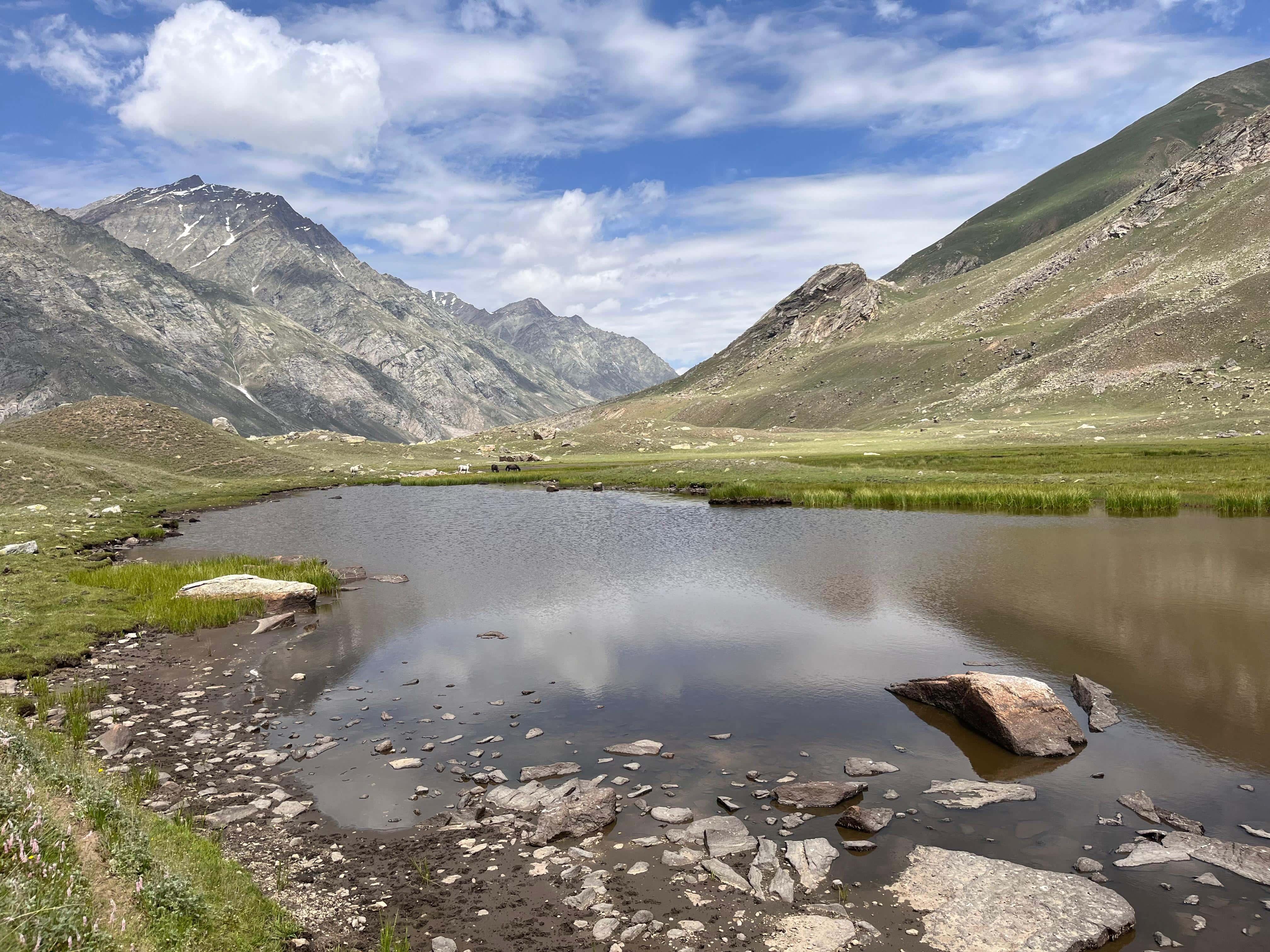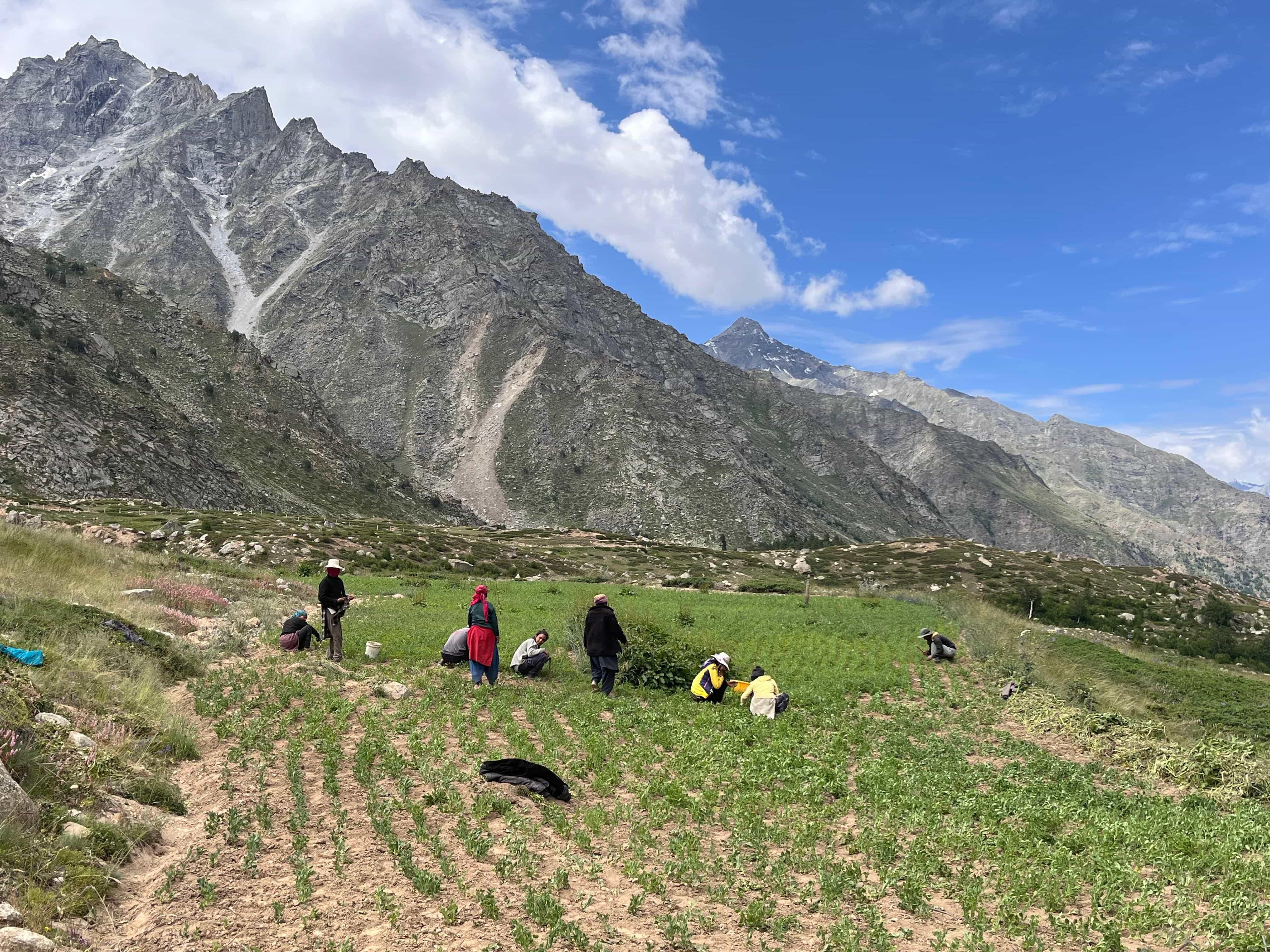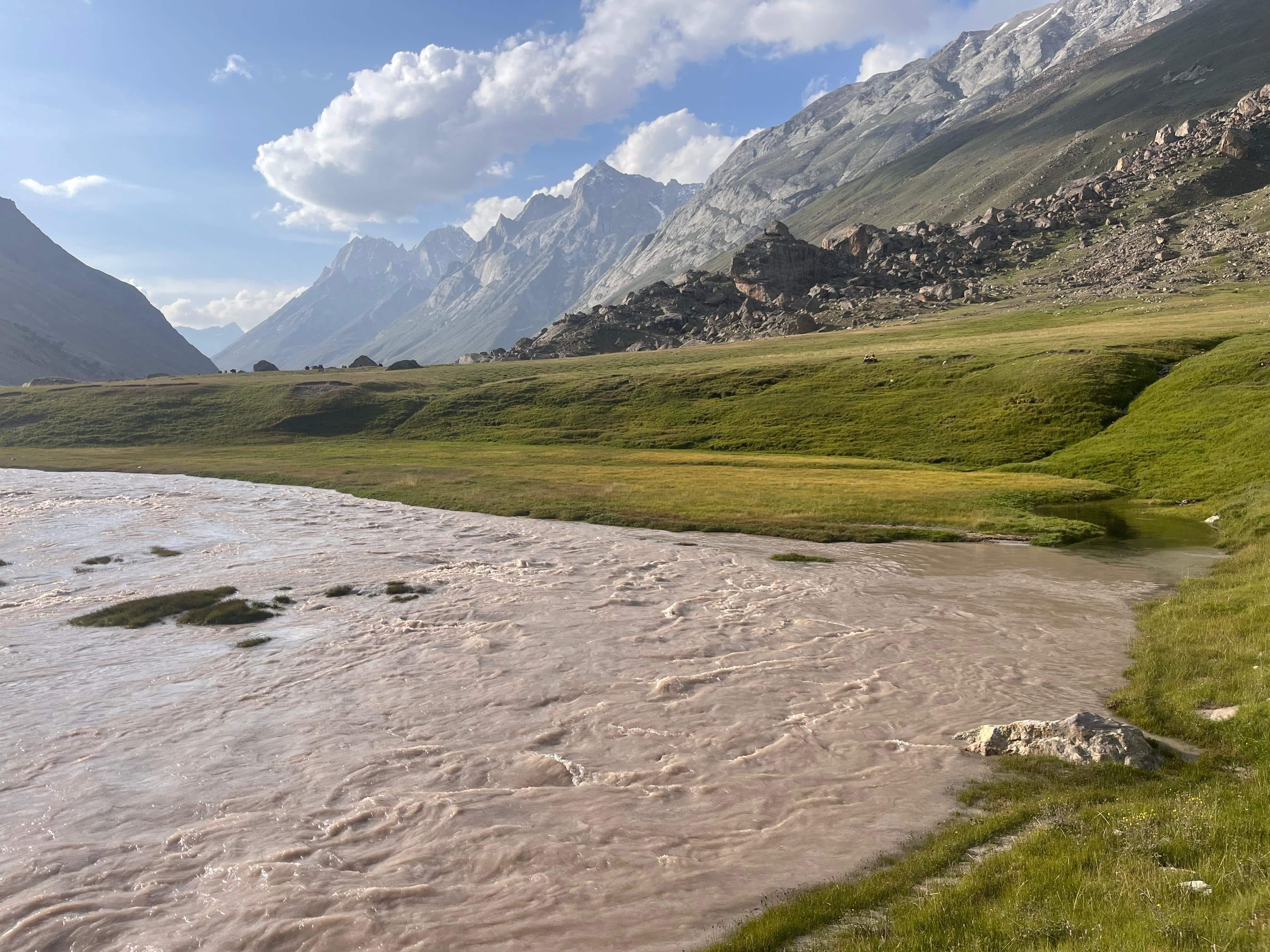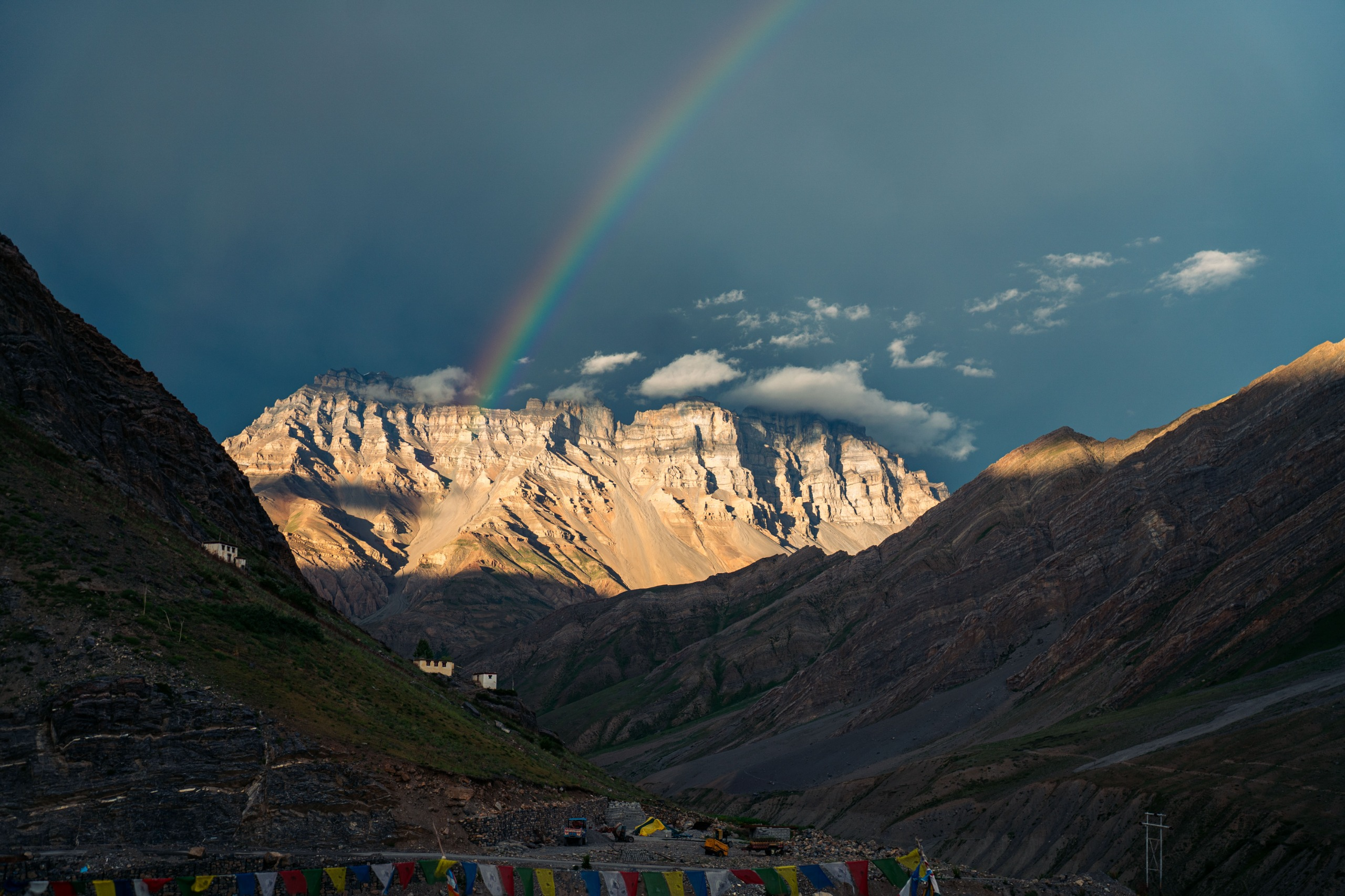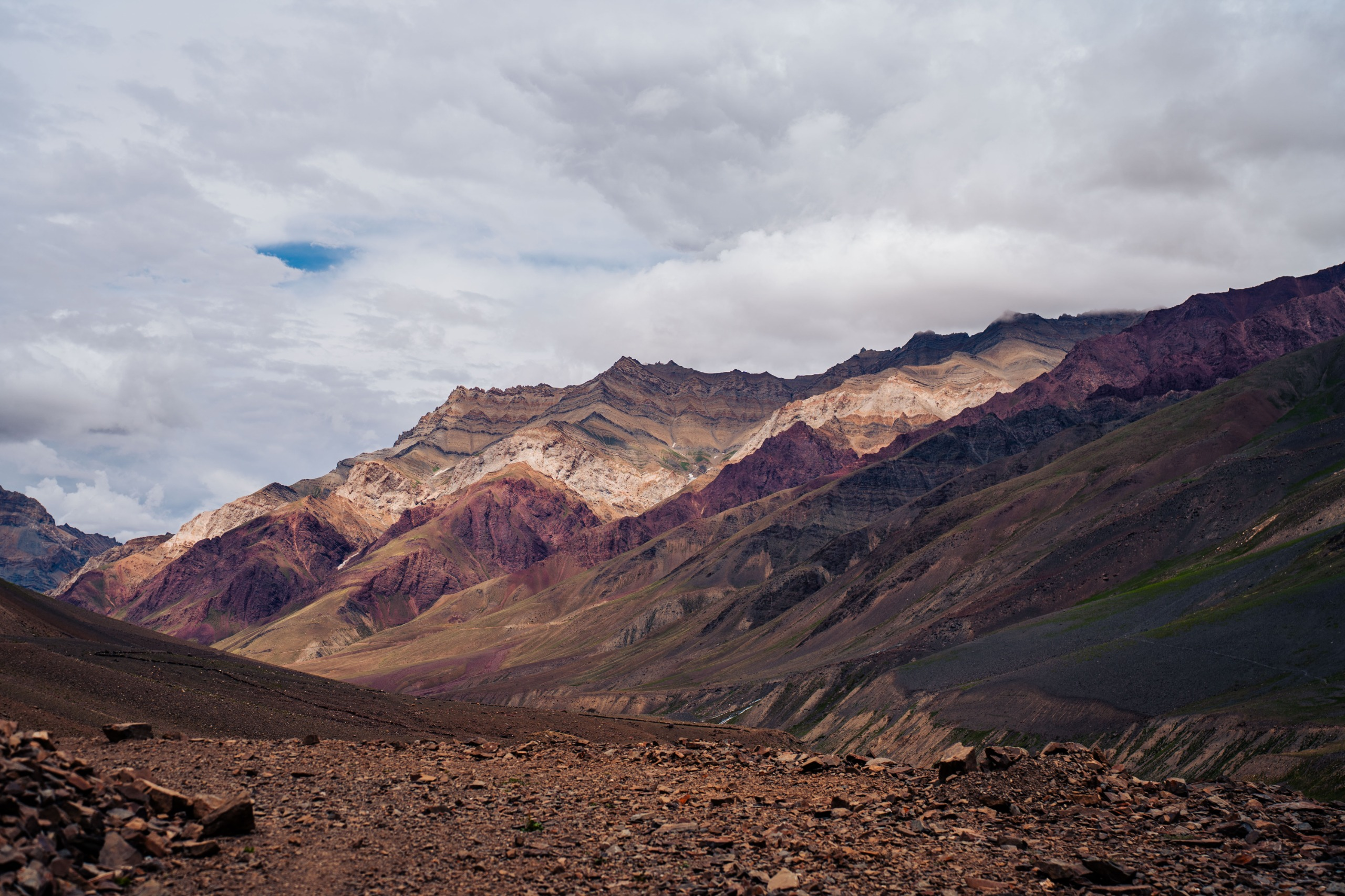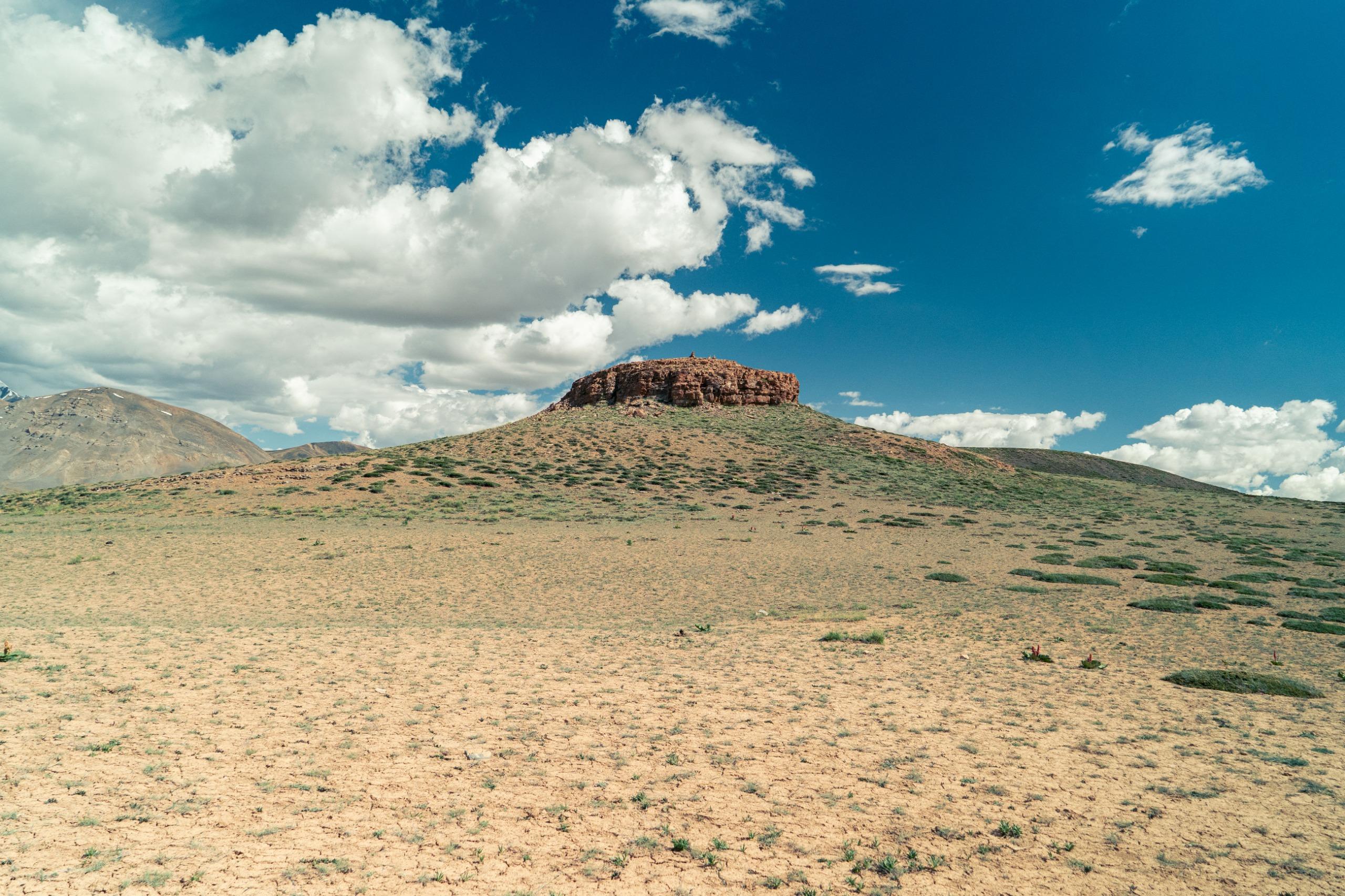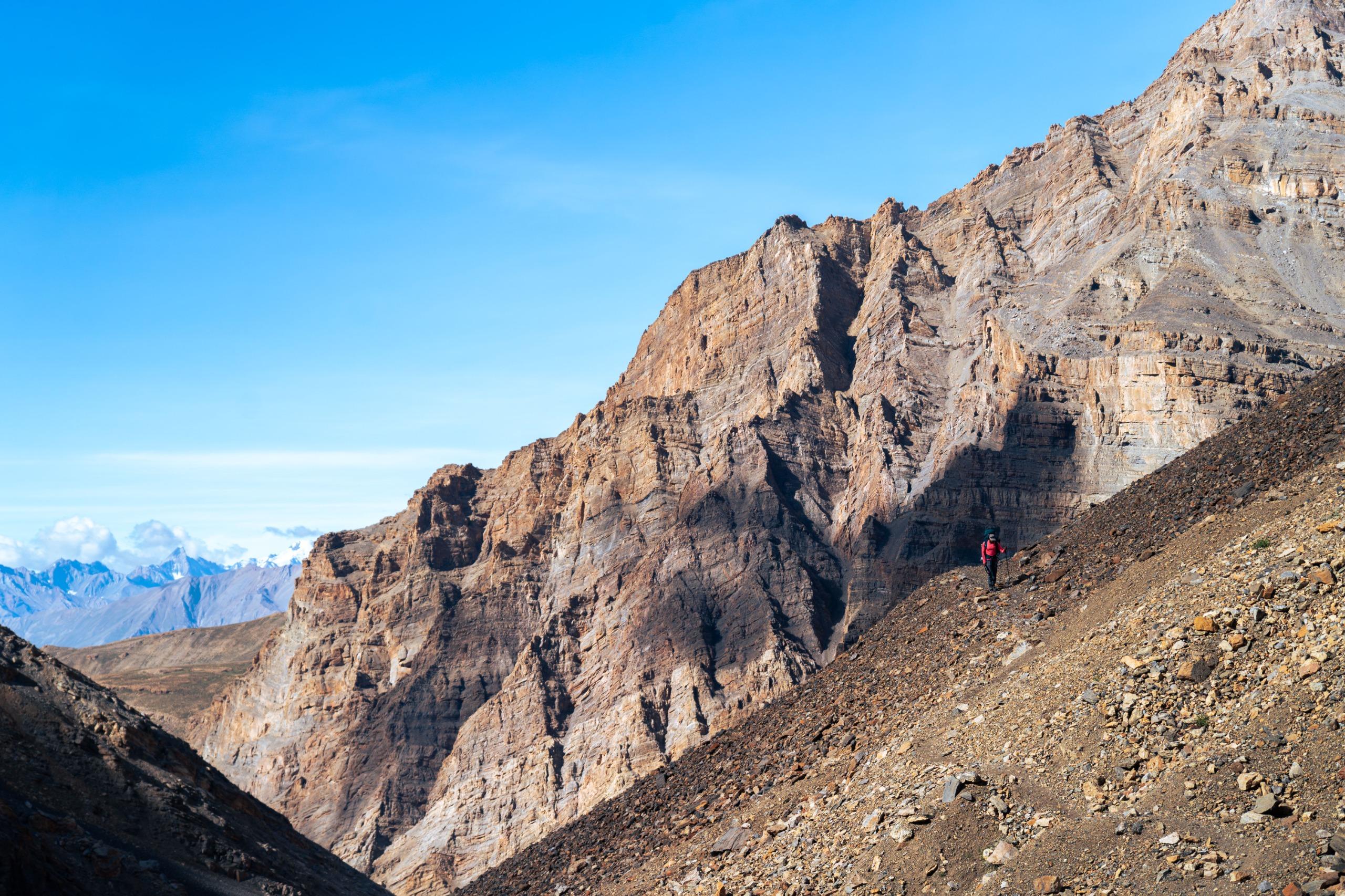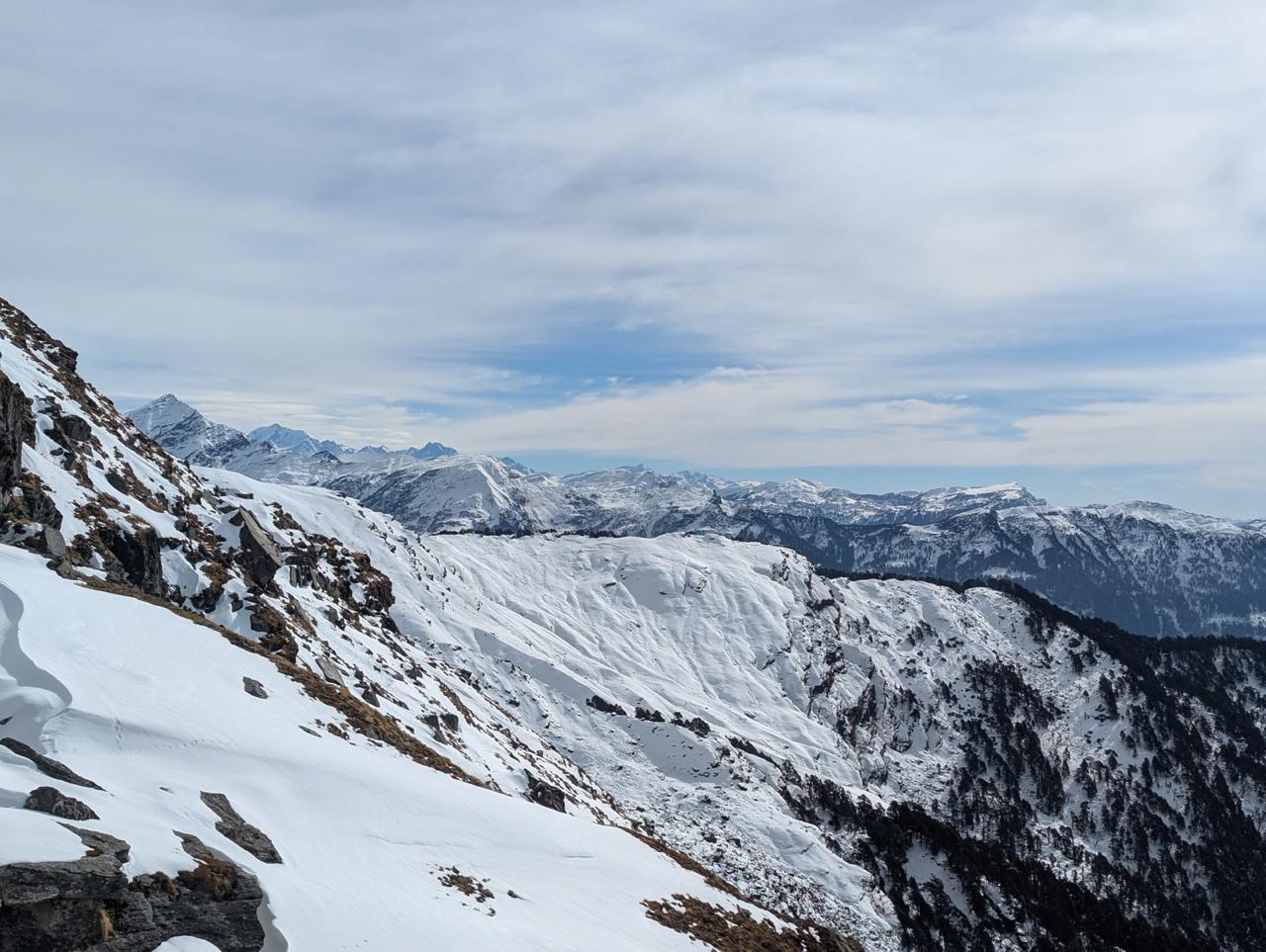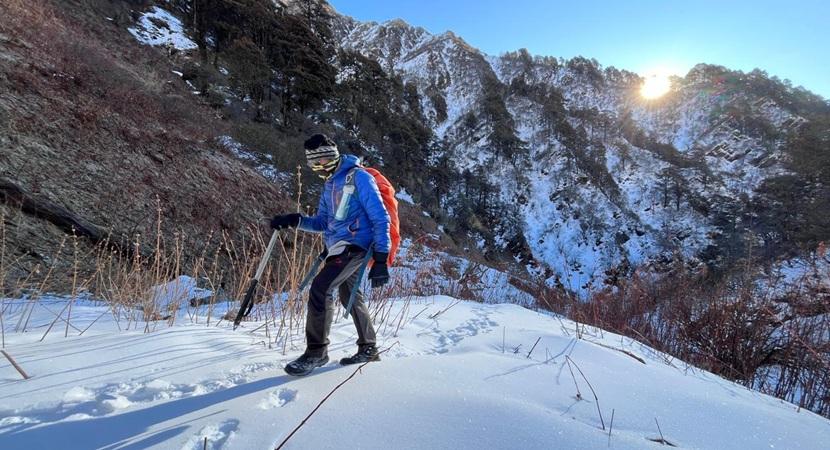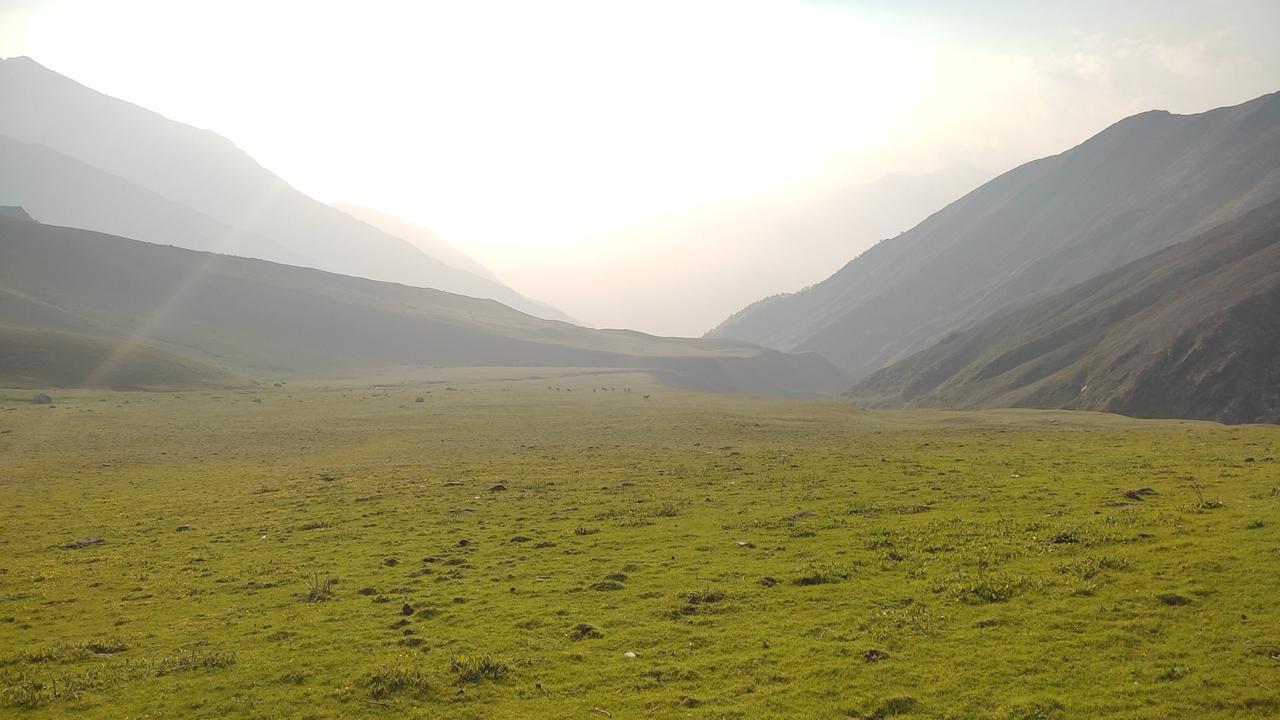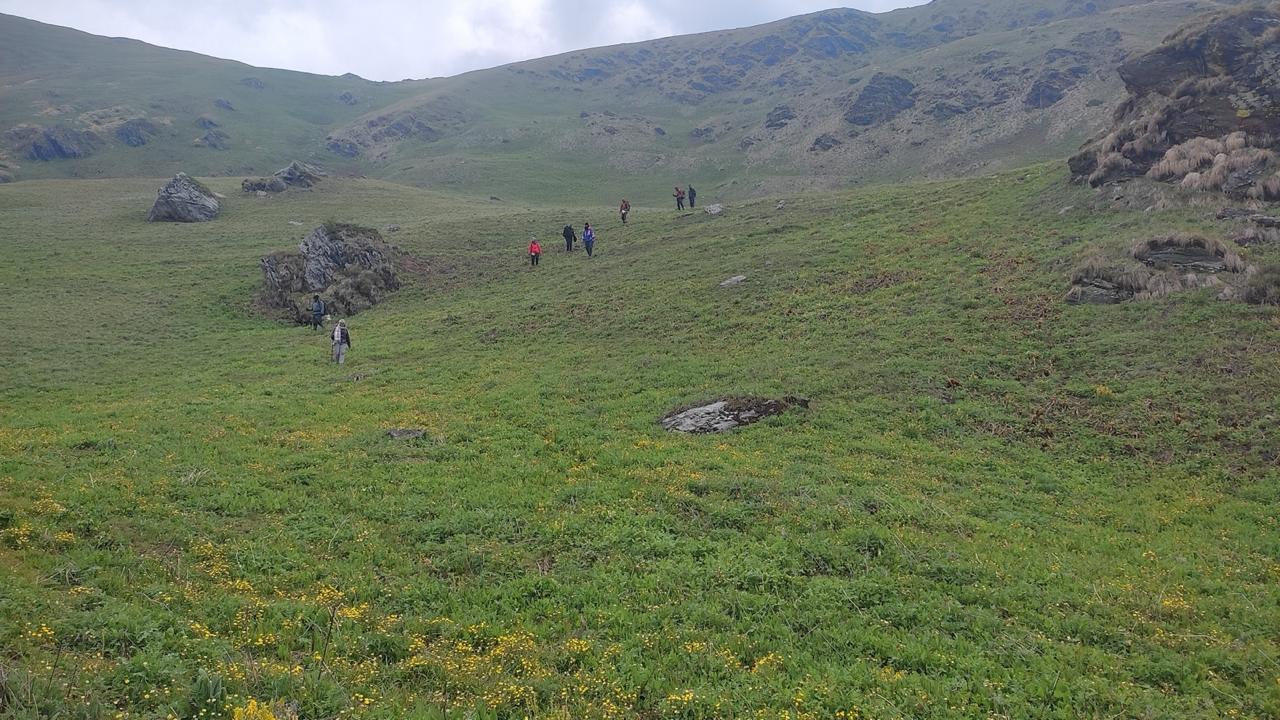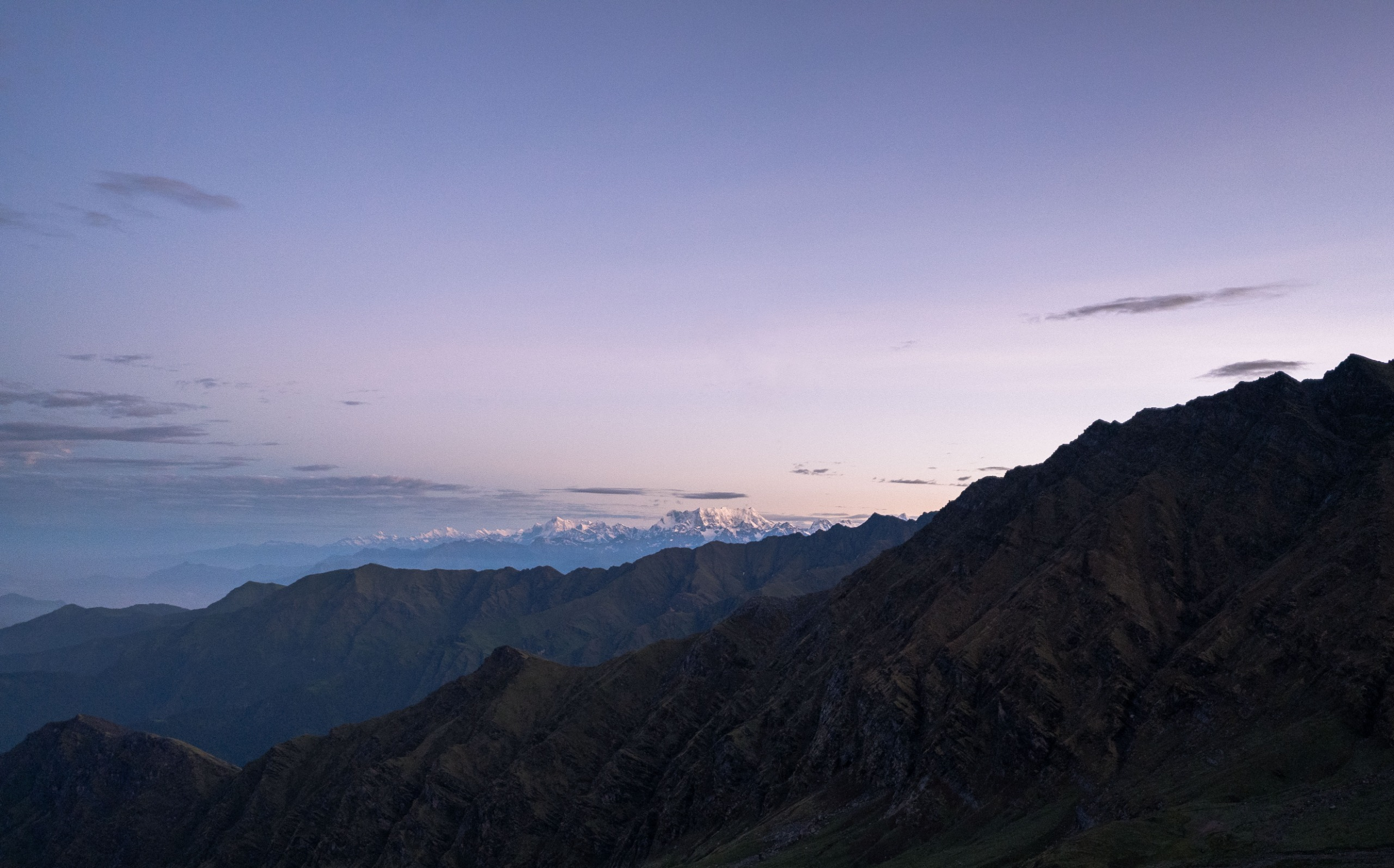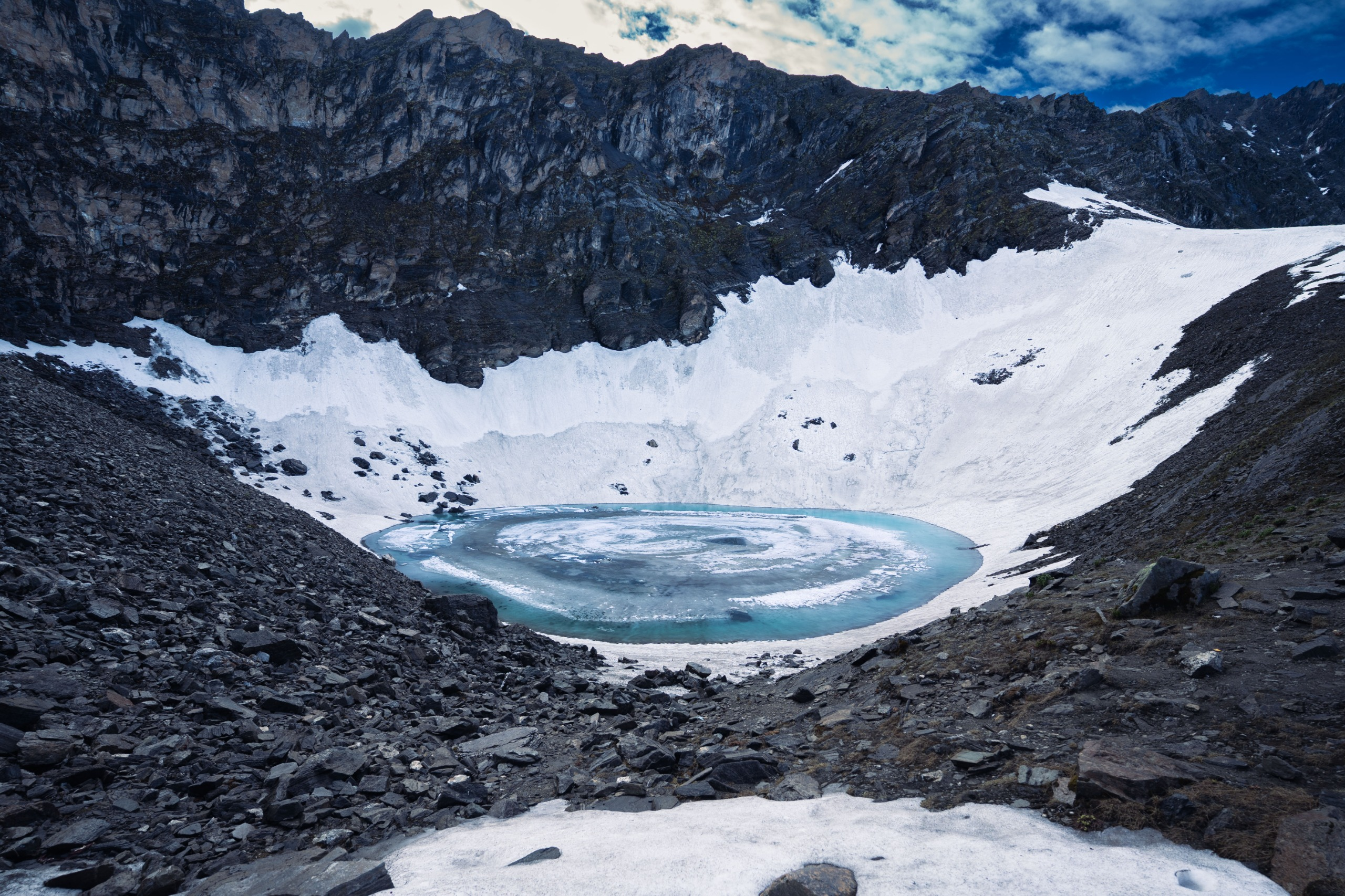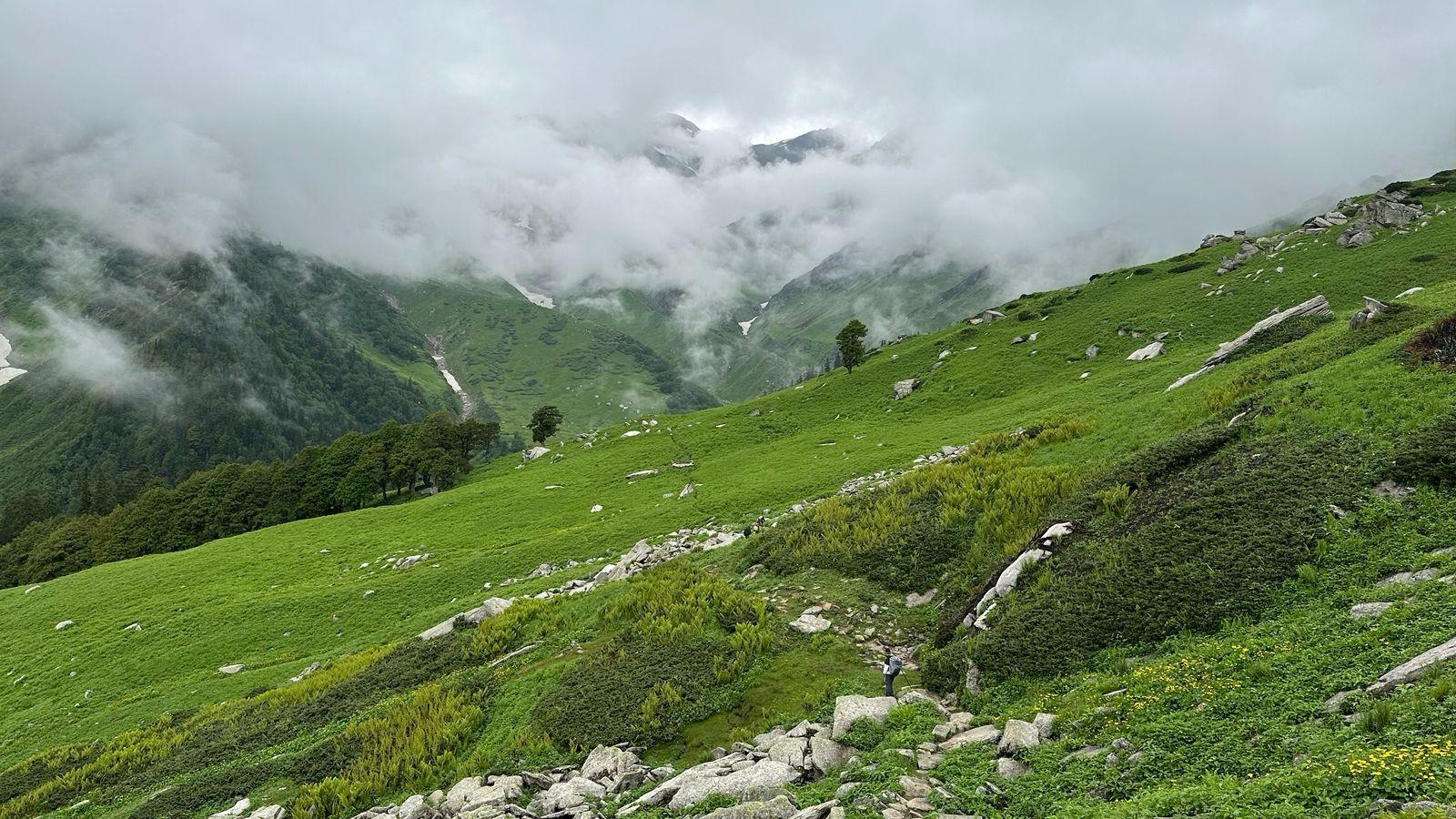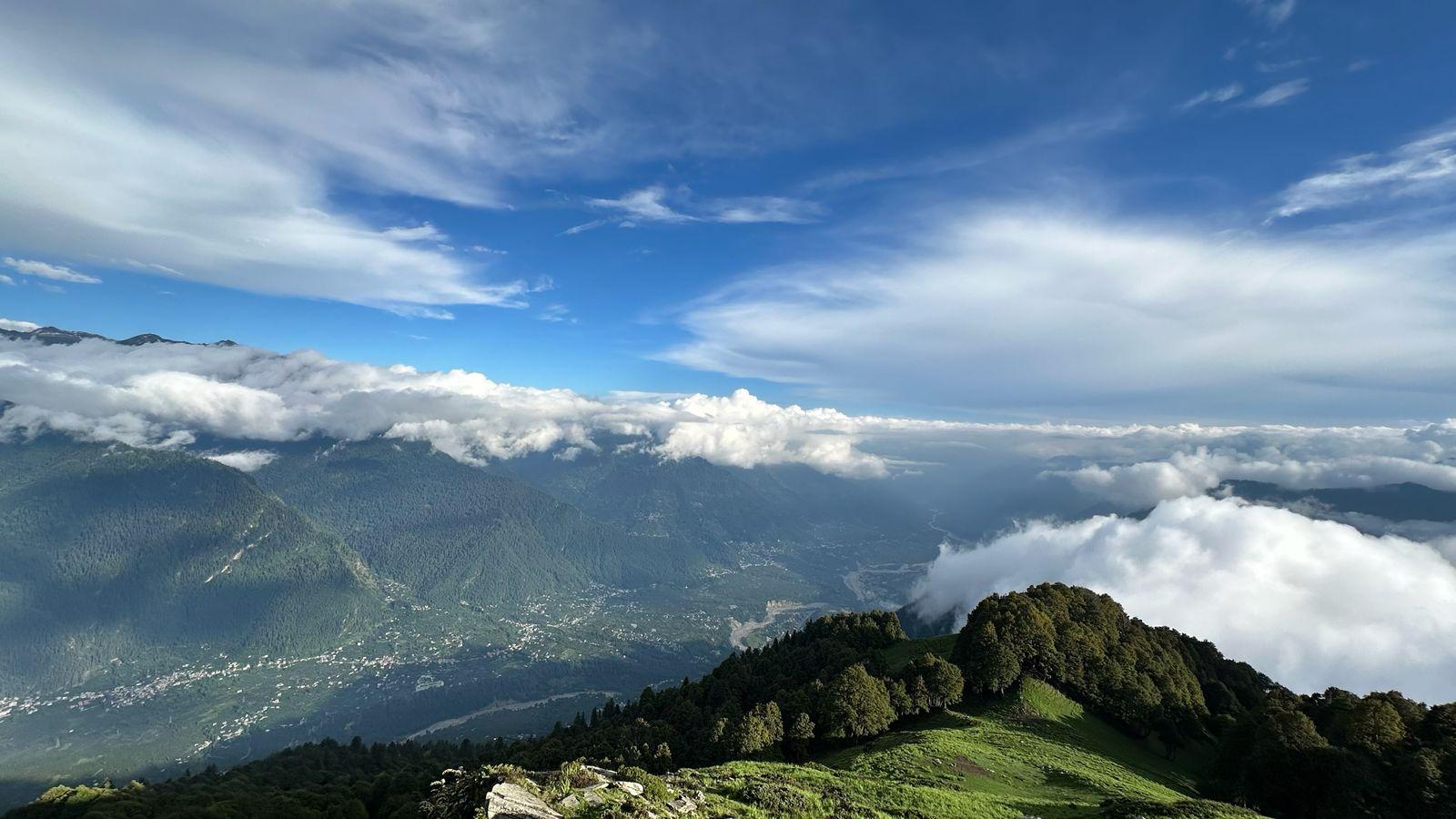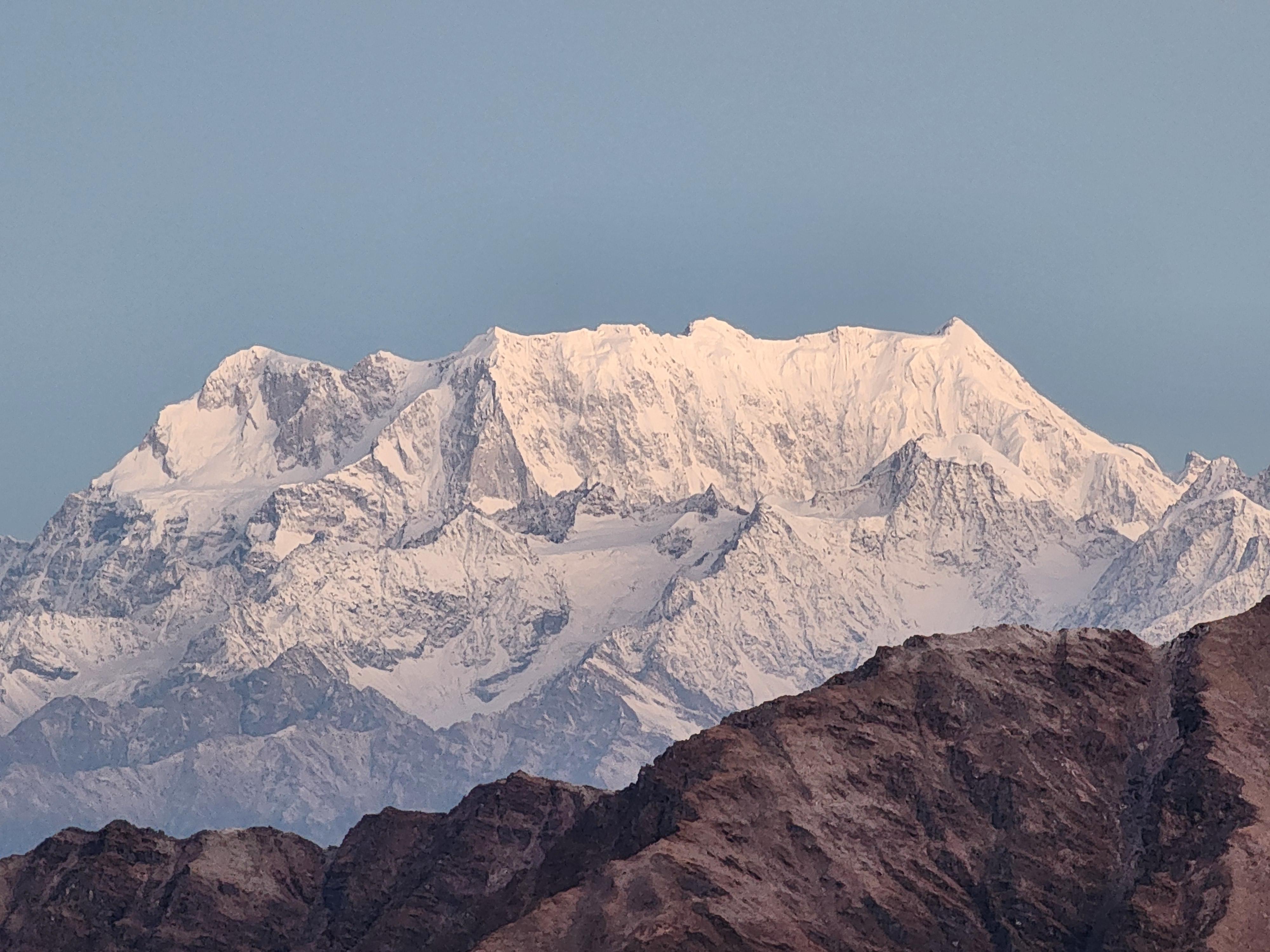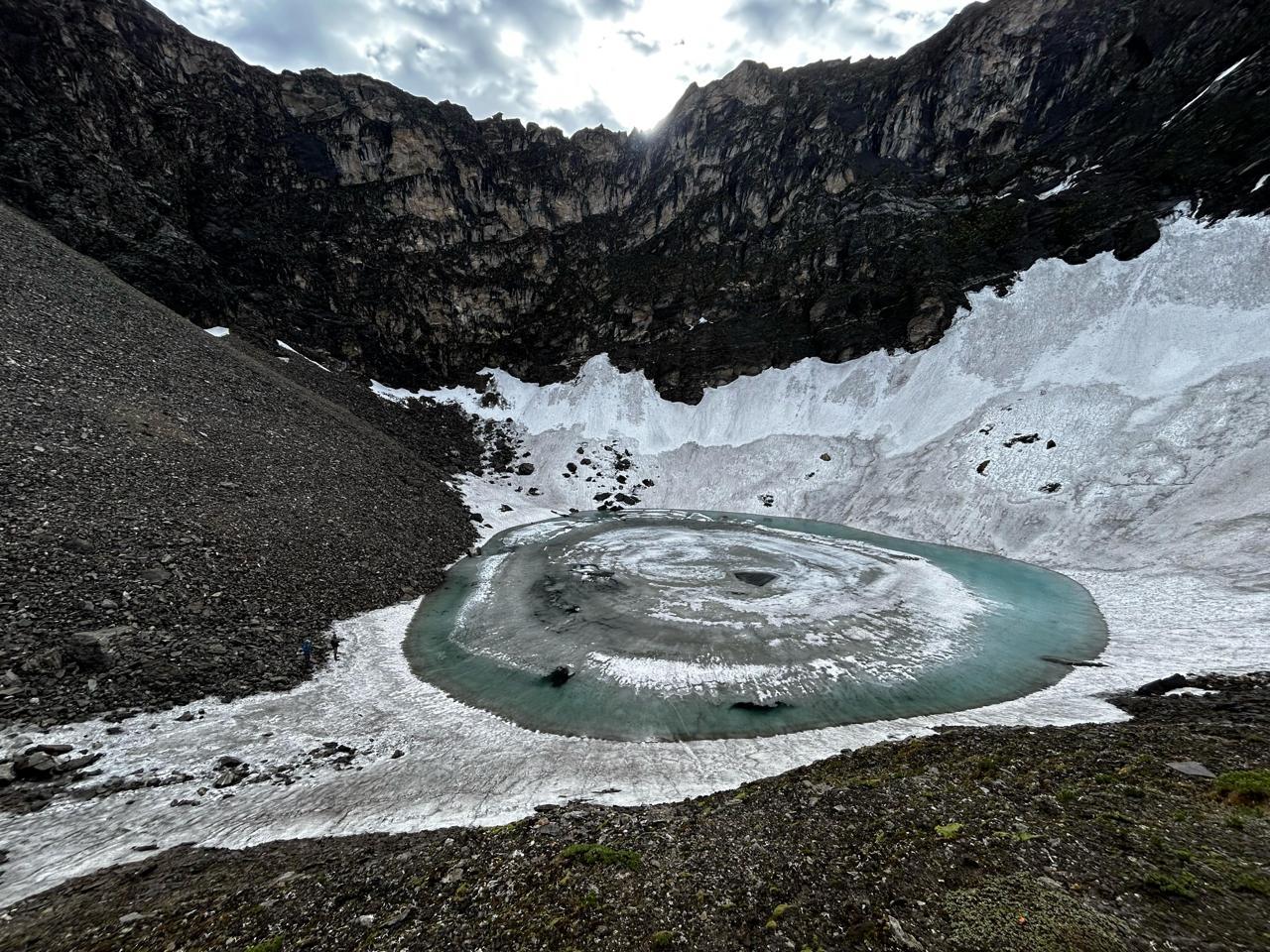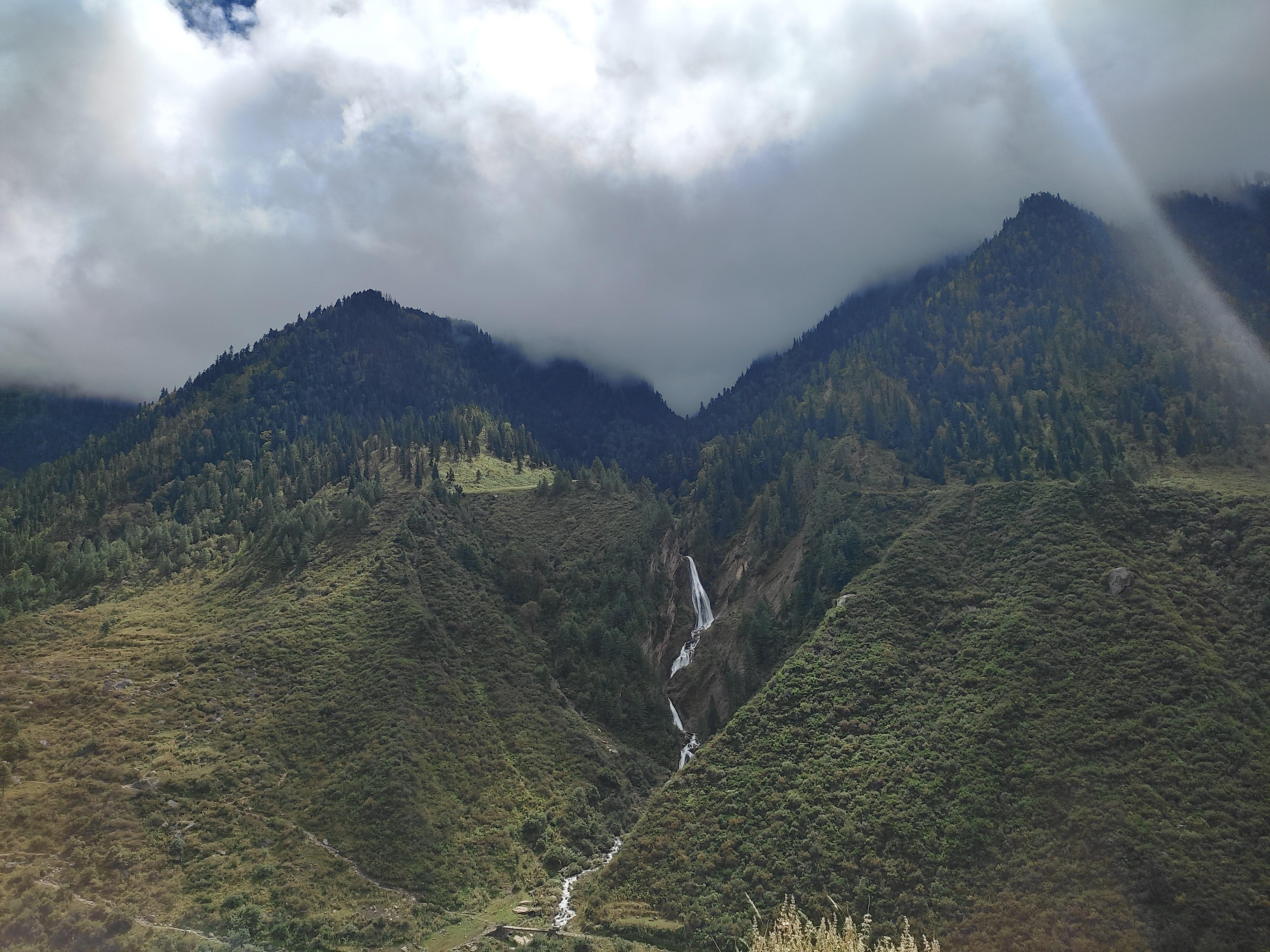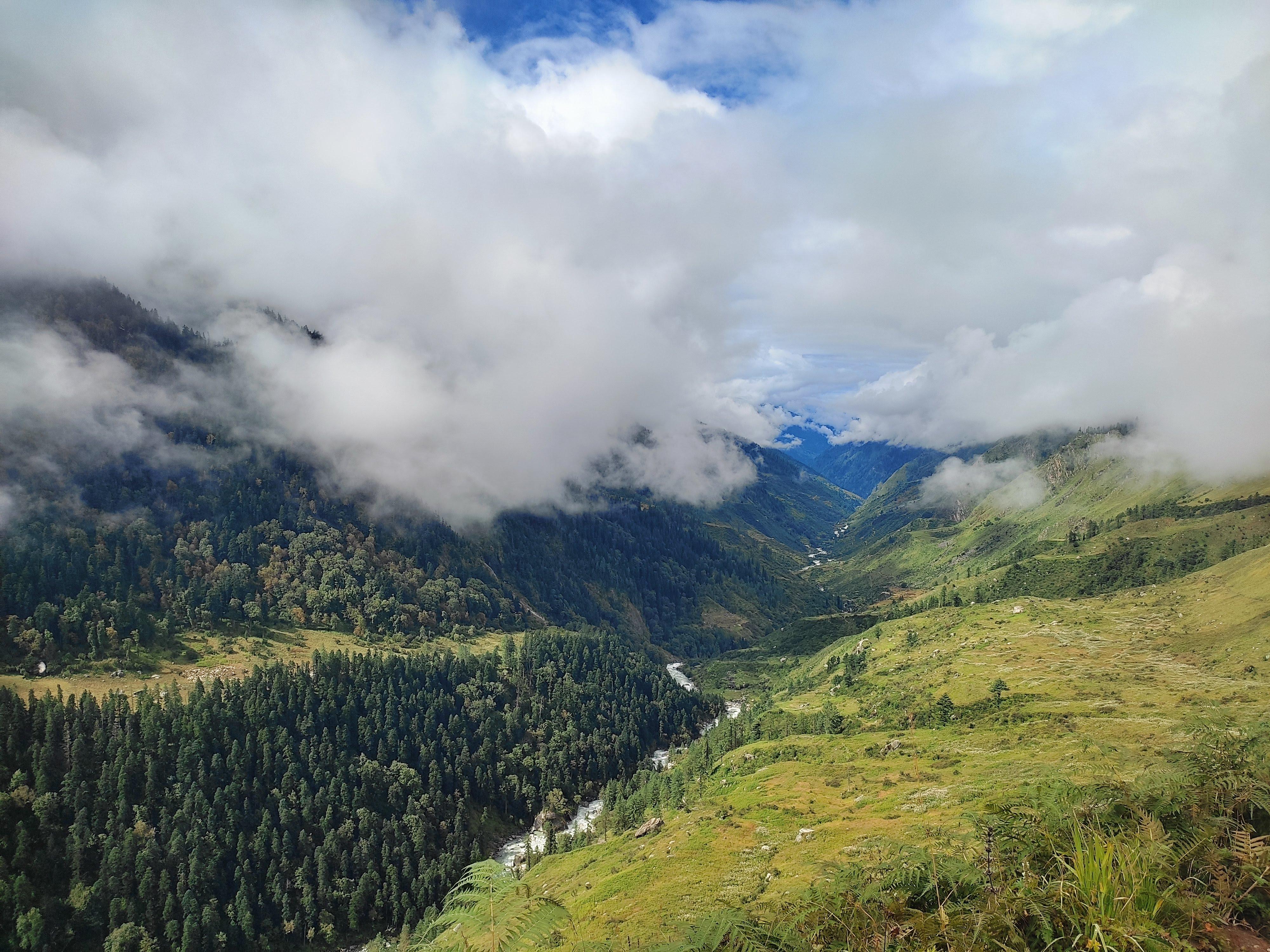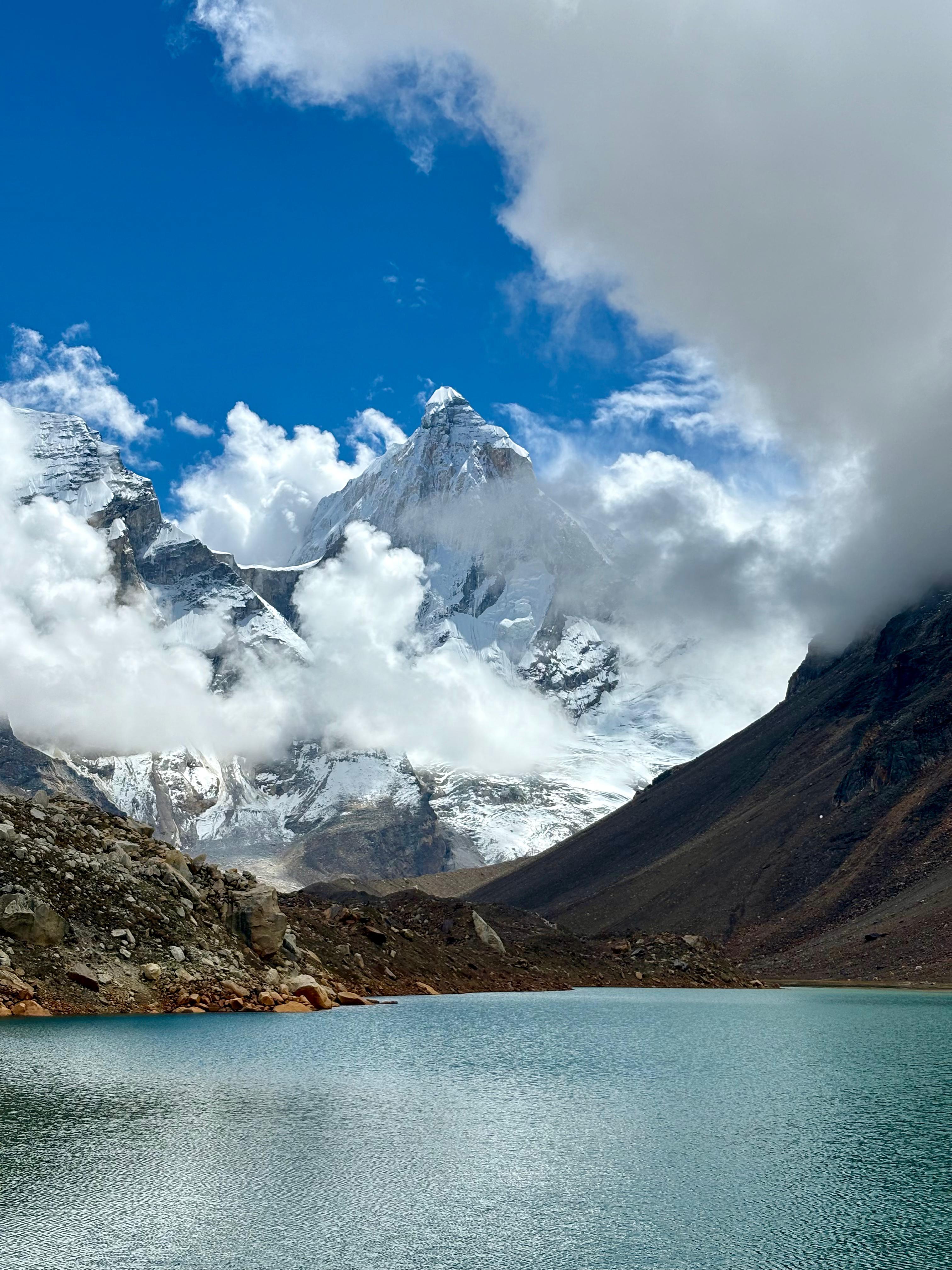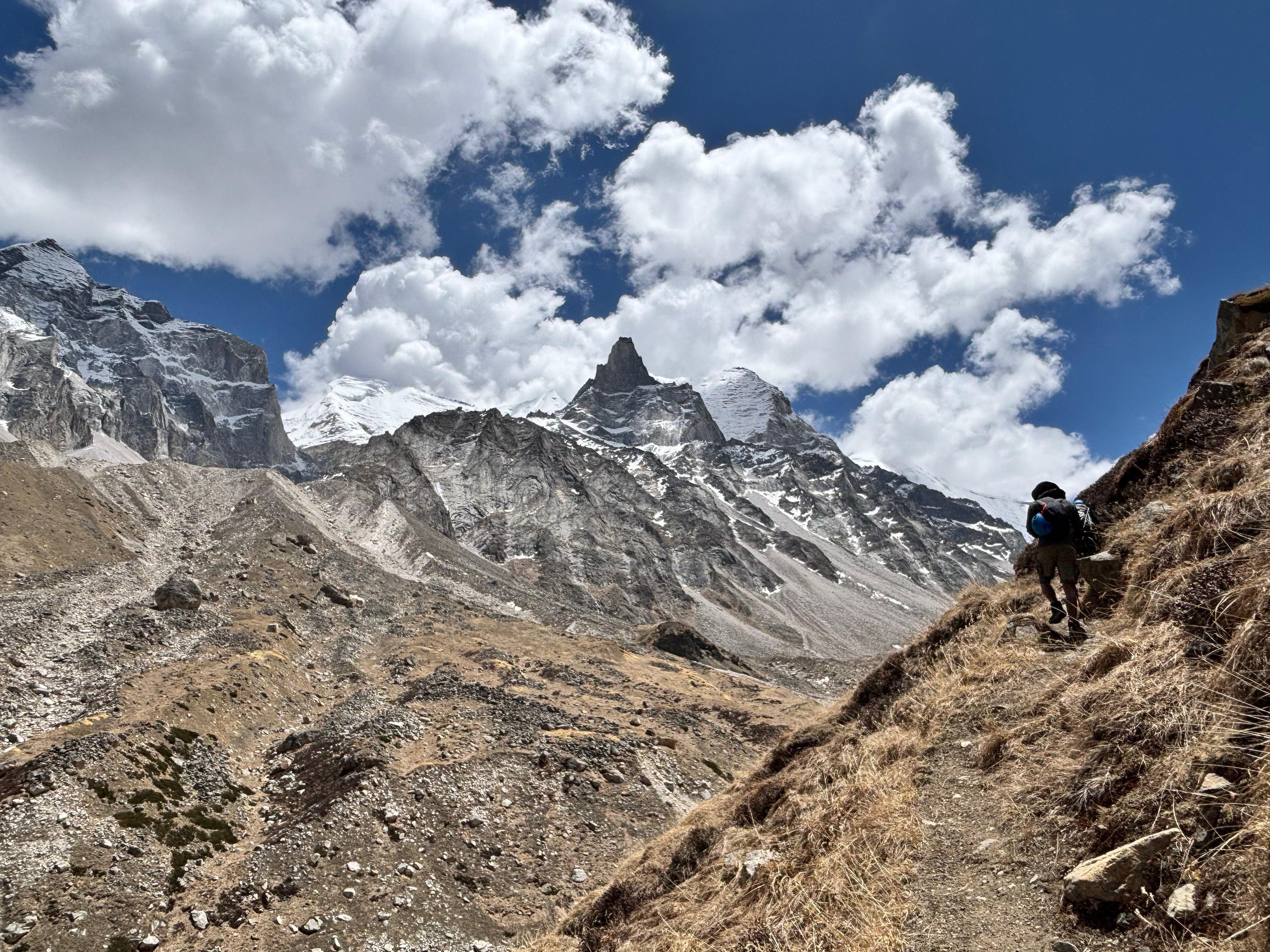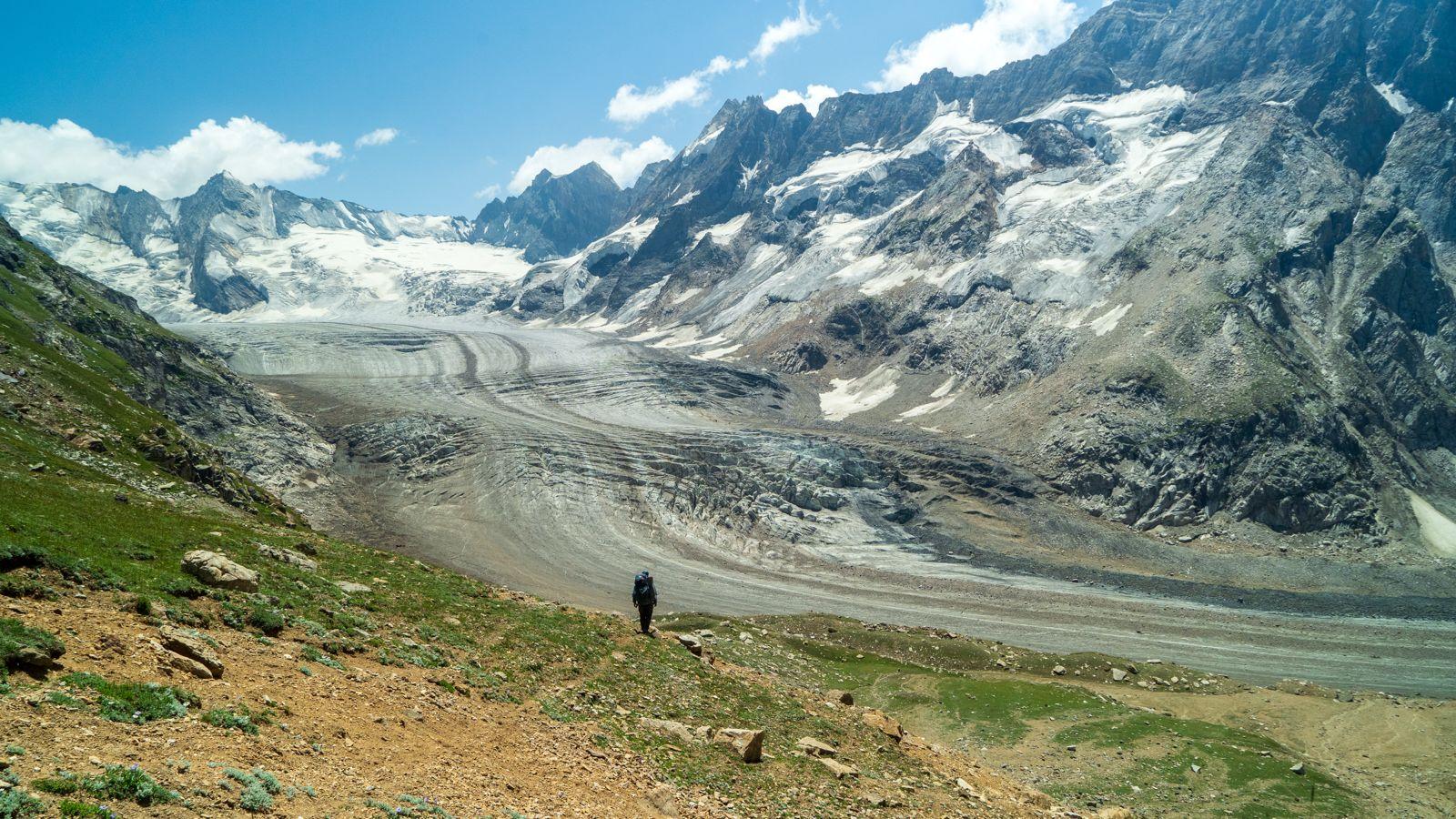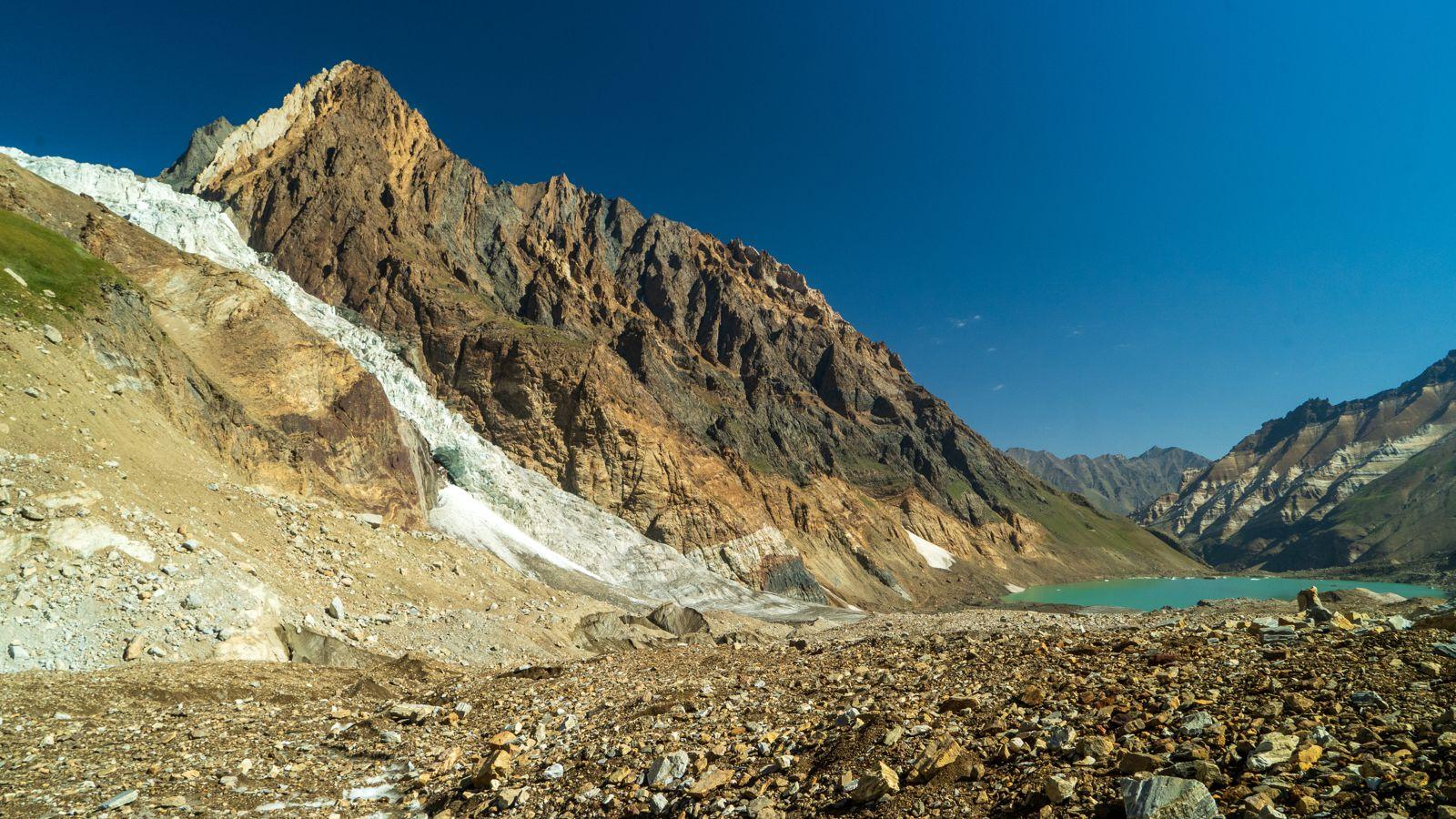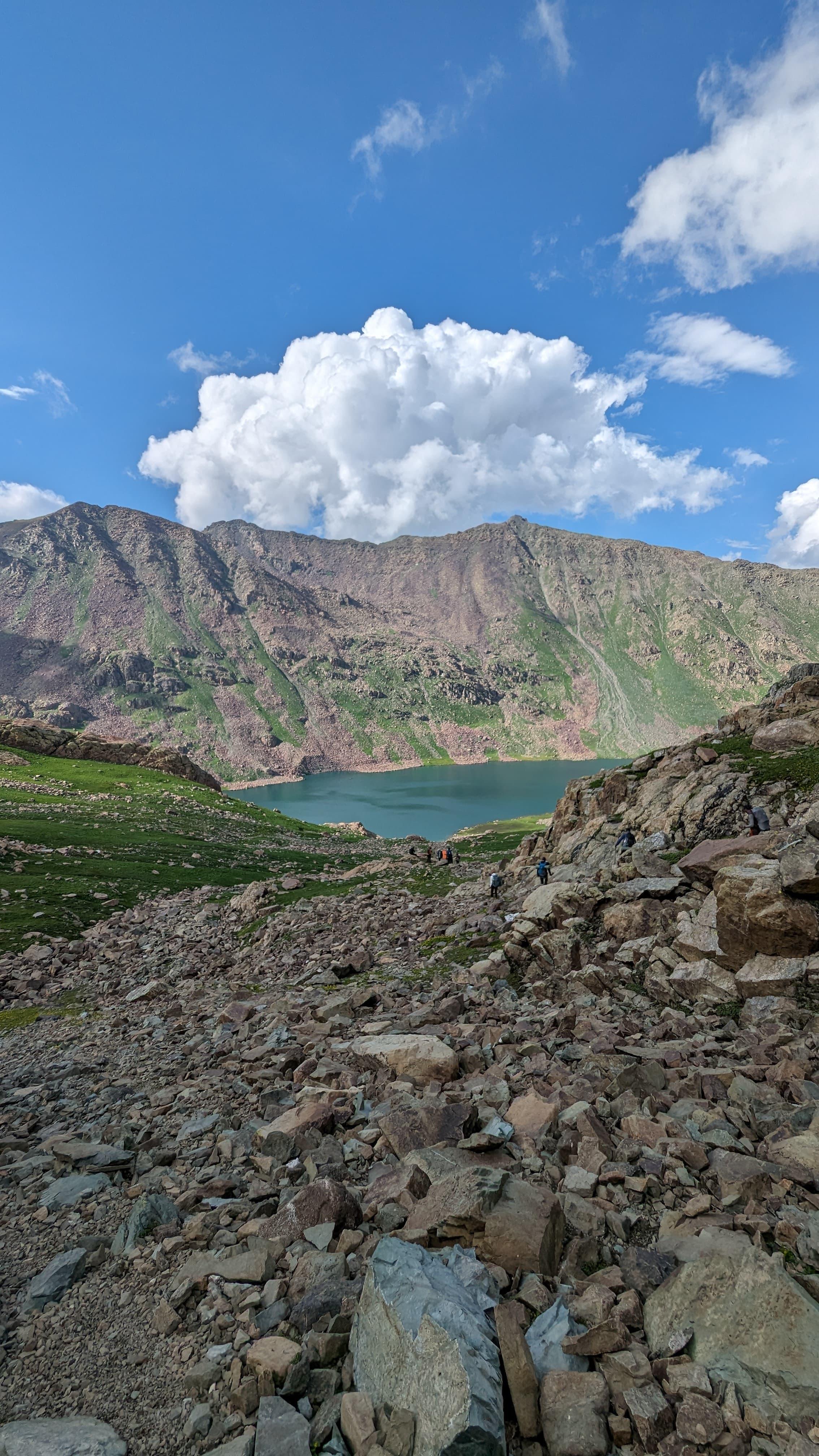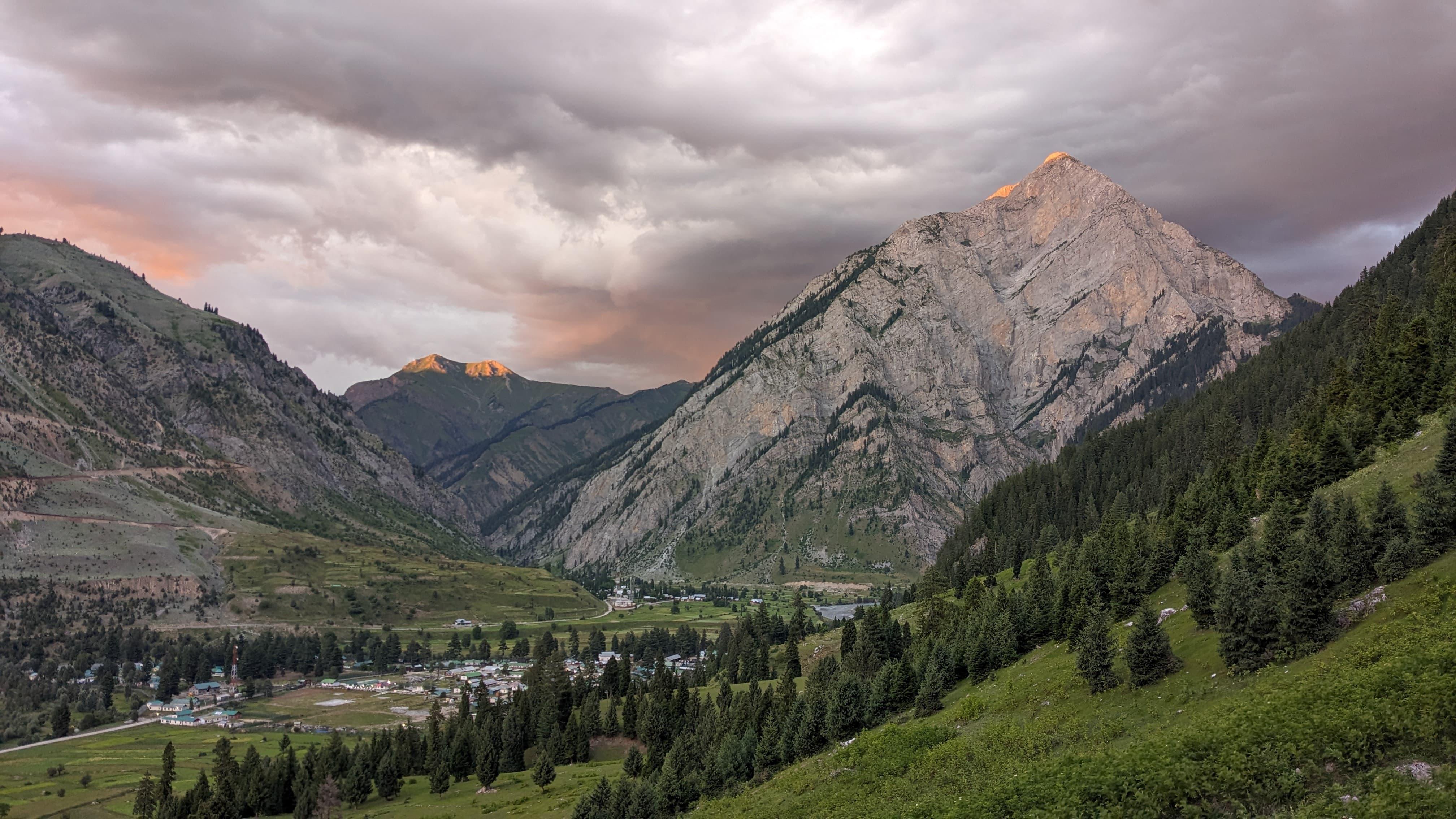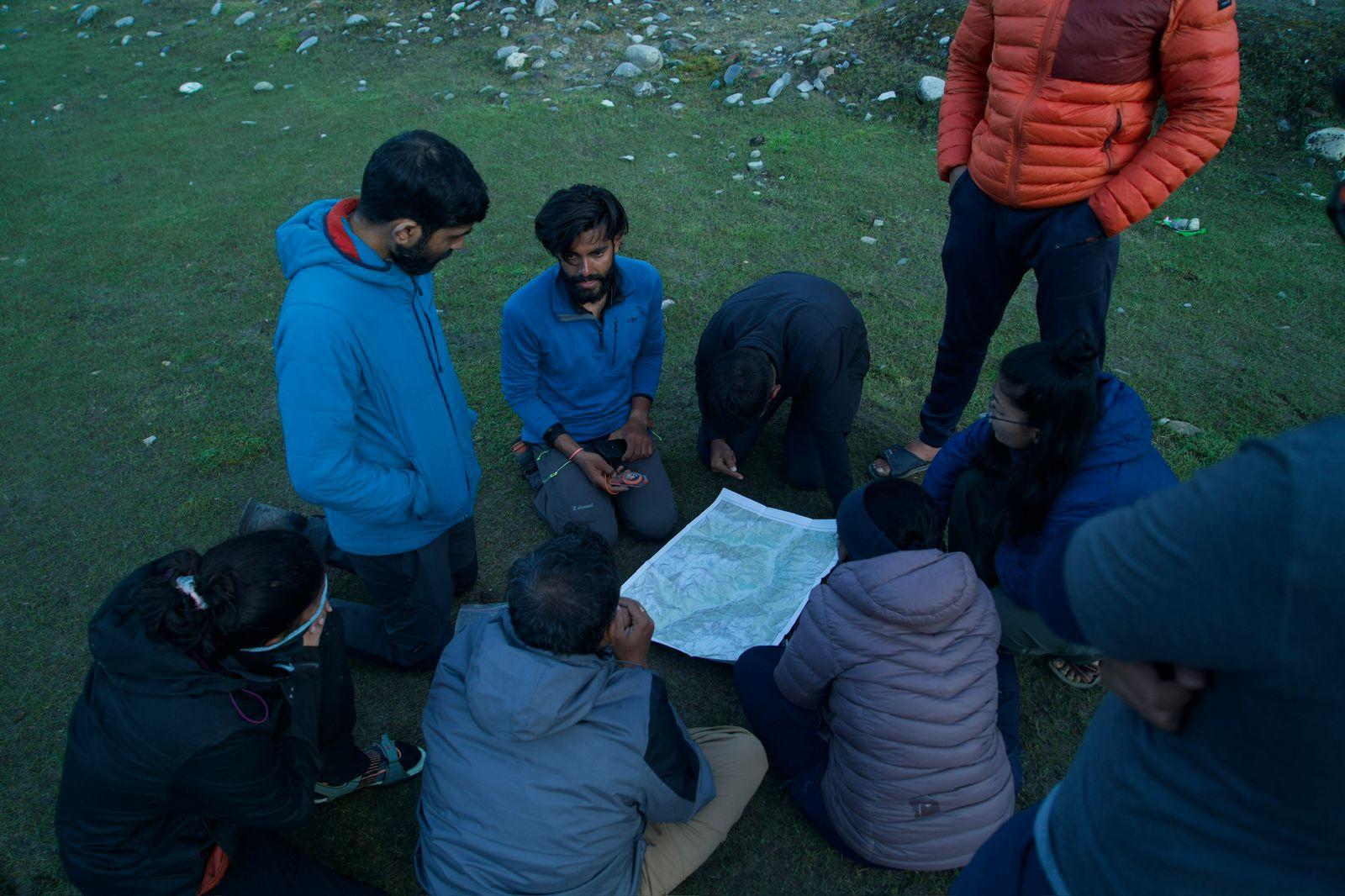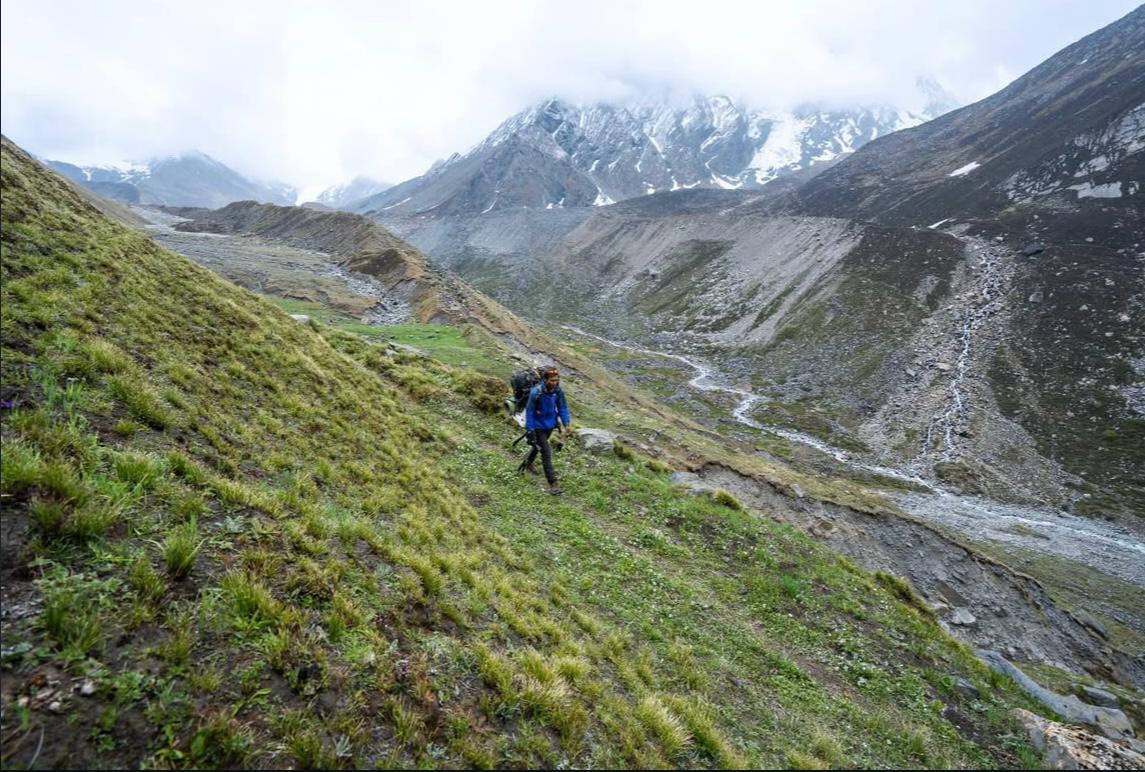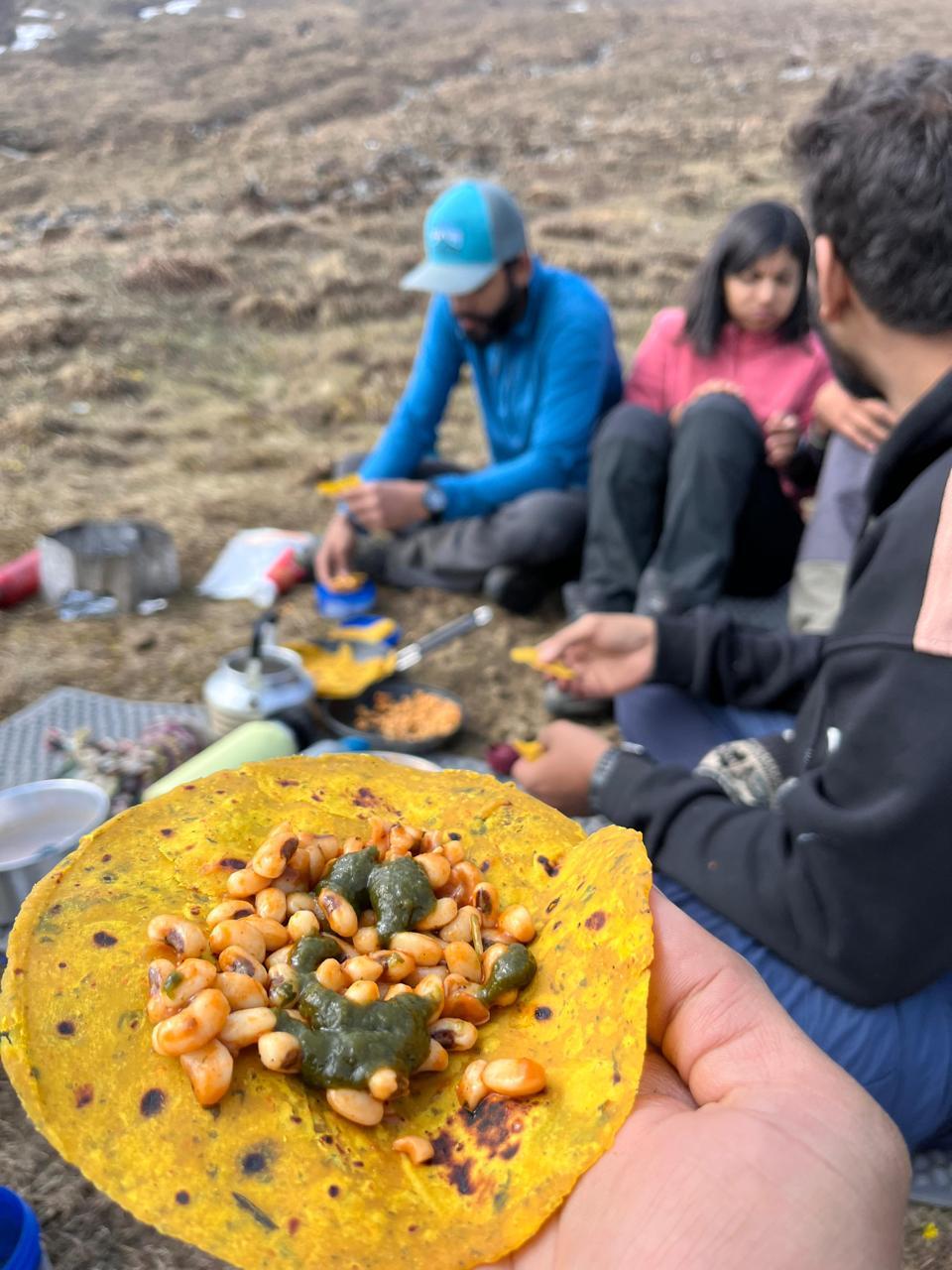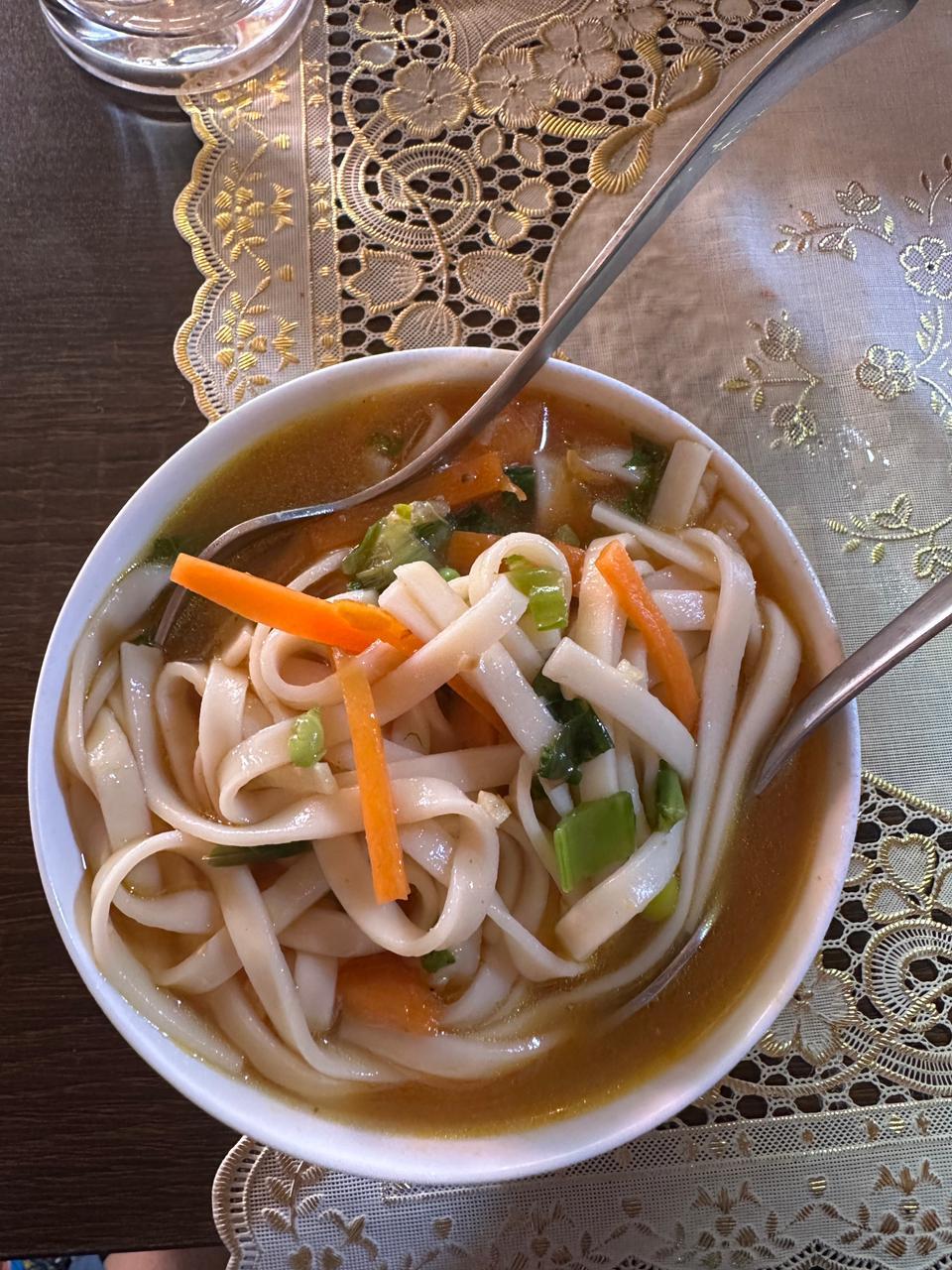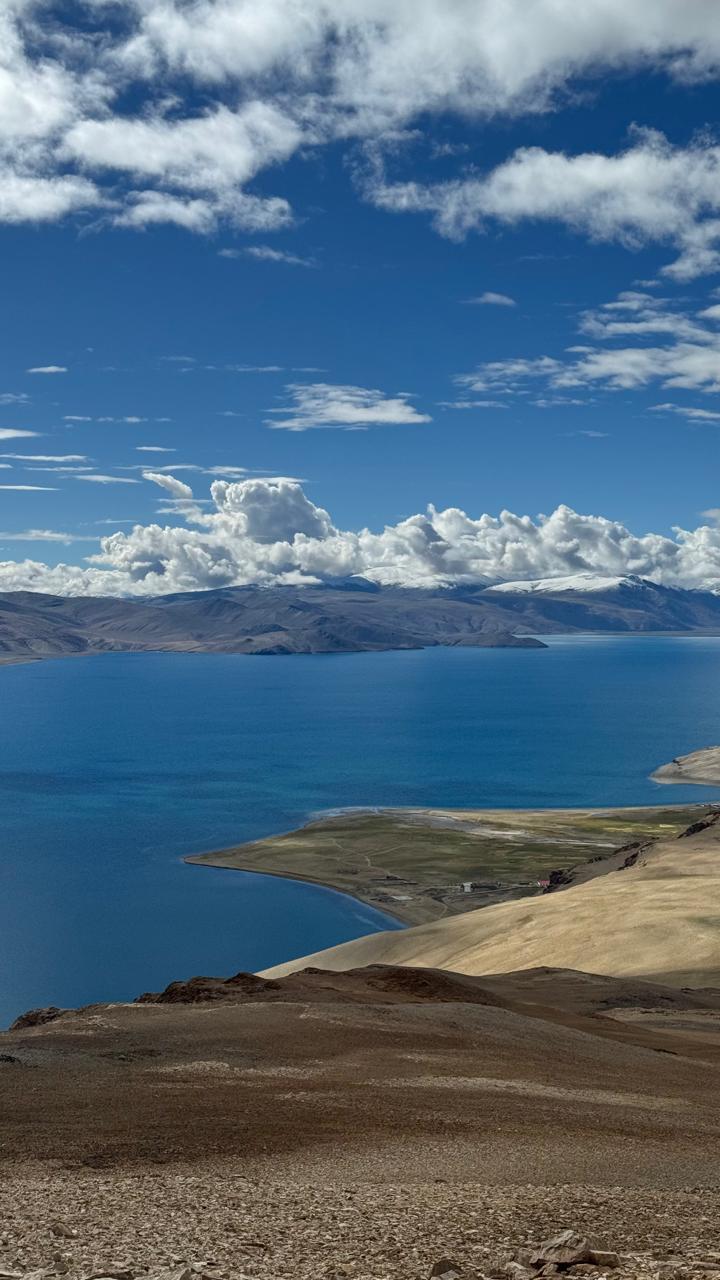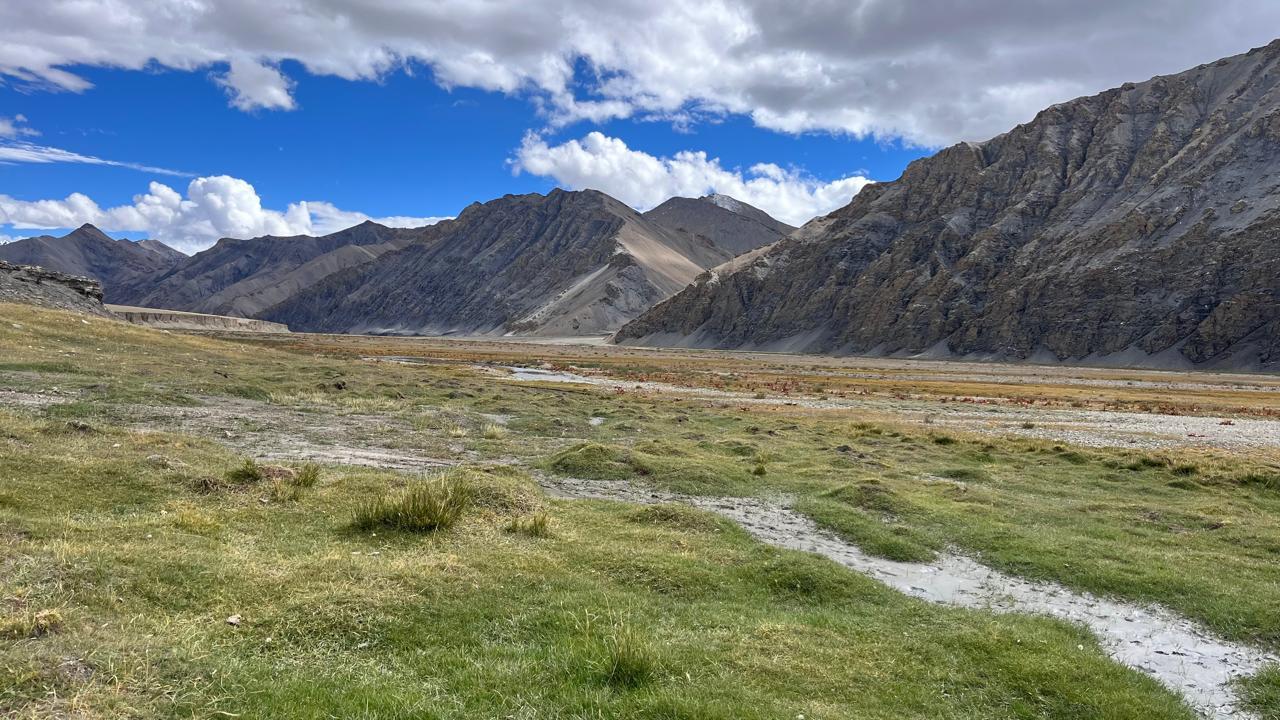Tucked into the northern reaches of Lahaul, the Miyar Valley is a lesser-known paradise that mirrors the grandeur of Zanskar without the footfall. Spread out like a green ribbon between vertical granite cliffs, it offers gentle trails, wildflower pastures, and views of some of the most awe-inspiring mountains in Himachal. Traditionally used by Gaddi shepherds and traders to access Zanskar via the Kang La Pass, the trail is now a window into Lahaul's rich, rugged heritage.
The valley is named after the Miyar Nala—a glacier-fed river that originates near the Kang La and meanders through the entire trek. Unlike other Himalayan trails, Miyar Valley is not about high passes or harsh gradients; it's about immersion into slow alpine transitions: from potato fields and grazing grounds to boulder gardens and icy streams. The trek passes through ancient villages like Shukto, mountain temples, glacial moraines, and high-altitude meadows bursting with wildflowers, especially during the bloom in August.
Culturally, the valley is influenced by Tibetan Buddhism and Hindu pastoral life. Stone chortens, prayer flags, and Gaddi settlements dot the landscape, while shepherds and their flocks share the same trails. The locals speak a dialect of Lahauli, and their lives still revolve around the rhythm of the land.
Despite its dramatic setting, the trek is graded moderate in difficulty. There's no extreme altitude gain, no technical sections, and it follows a classic in-and-out route. But what it lacks in altitude drama, it makes up for in sheer beauty, tranquility, and scale. For trekkers seeking a quiet, immersive, and meditative Himalayan journey—Miyar is perfect.
Day 1
Drive from Manali to Shukto
Drive Distance: ~140 km (Manali to Shukto)
Time Taken: 6–7 hrs
Elevation Profile: 6,700 ft (Manali) → 9,800 ft (Shukto)
The journey begins with a spectacular drive from Manali to Udaipur in Lahaul, passing through the Atal Tunnel and descending into the drier trans-Himalayan region. From Udaipur, a narrow mountain road winds toward Shukto along the Miyar Nala. En route, you’ll witness changing topography—lush pine forests give way to barren cliffs, boulder-strewn paths, and glacial streams. Arrive at Shukto, a small settlement nestled in the lap of Miyar Valley. Overnight in Shukto by the riverside.
Day 2
Shukto to Yolling
Trek Distance: ~5 km (Shukto to Yolling)
Time Taken: 3 hrs
Elevation Profile: 9,800 ft (Shukto) → 10,400 ft (Yolling)
Your trek begins from Shukto as you follow the Miyar River upstream, walking alongside gentle alpine slopes and shepherd huts. The trail crosses wooden bridges and lush pastureland, offering views of the river below and dramatic granite cliffs above. Yolling is a scenic pasture tucked into a bend in the valley, surrounded by flowering grasslands and occasional yaks grazing freely. This is your first campsite—a serene setting to absorb the rhythm of the valley.
Day 3
Yolling to Zardung
Trek Distance: ~8 km (Yolling to Zardung)
Time Taken: 5–6 hrs
Elevation Profile: 10,400 ft (Yolling) → 10,800 ft (Zardung)
Leave Yolling behind and continue deeper into the valley. The trail traverses mixed terrain—first through grassy slopes and then entering moraine-filled ground with scattered boulders. You may have to navigate across narrow ridgelines and side streams depending on snowmelt. The views begin to open dramatically, revealing the U-shaped valley and distant peaks. Zardung is a broad plateau framed by cliffs and wildflowers, a perfect resting spot in the heart of alpine wilderness.
Day 4
Zardung to Palpu via Khesar Yon Chhap
Trek Distance: ~12 km (Zardung to Palpu via Kesar Yon Chhap)
Time Taken: 6–7 hrs
Elevation Profile: 10,800 ft (Zardung) → 13,940 ft (Kesar Yon Chhap) → 11,500 ft (Palpu)
Start the day early as you hike deeper into high alpine terrain. The landscape transforms—green meadows give way to stark glacial moraines. You reach Palpu and take a detour to visit Kesar Yon Chhap—meaning “Seven Sacred Springs.” This is a confluence of glacial streams, set against towering granite walls and snowbound ridges. It’s the spiritual and geographical high point of the trek. After spending time here, descend back to Palpu to camp amidst green pasture, dzos grazing, and panoramic views.
Day 5
Palpu to Thanpattan
Trek Distance: ~9 km (Palpu to Thanpattan)
Time Taken: 5 hrs
Elevation Profile: 11,500 ft (Palpu) → 10,000 ft (Thanpattan)
A gentle descent day that winds through flower-filled benches, side streams, and boulder plains. The trail offers wide panoramas of the valley you just explored. Thanpattan is a broad, picturesque campsite used by Gaddi herders. It’s one of the most peaceful locations, with meadows stretching to the cliffs on either side and plenty of space to relax, reflect, or observe wildlife.
Day 6
Thanpattan to Shukto
Trek Distance: ~6 km (Thanpattan to Shukto)
Time Taken: 3 hrs
Elevation Profile: 10,000 ft (Thanpattan) → 9,800 ft (Shukto)
An easy final walk back to Shukto, retracing your journey through well-trodden shepherd paths and gentle descents. The scale of the valley feels more intimate on the return. Reach Shukto by late morning and rest near the riverbanks. Overnight at Shukto.
Day 7
Drive from Shukto to Manali
Drive Distance: ~140 km (Shukto to Manali)
Time Taken: 6–7 hrs
Elevation Profile: 9,800 ft → 6,700 ft
The final day begins with the return drive to Manali. Retrace your journey through the Miyar Valley, past villages, potato farms, and monasteries. Cross the Atal Tunnel to re-enter the lush green Kullu Valley. Expect to reach Manali by late afternoon or early evening, with hearts full of memories and SD cards full of alpine wonder.
Expectations on a Backpacking Trip
- Prior high-altitude trekking experience is not mandatory but helpful.
- A reasonable level of cardiovascular fitness is required as the trail involves walking for 5–7 hours on certain days over uneven terrain.
- Participants must be comfortable carrying a daypack (~10–12 kg) with essentials like gears, water, and food.
- Mental readiness to walk through remote wilderness without mobile connectivity, with basic facilities and participating in cooking, pitching tents at campsites.
- No technical mountaineering skills needed, but participants should be sure-footed on boulder fields and inclined slopes.
Minimum Fitness Requirement
- Capability to walk 10 km on hilly terrain in under 2.5 hours comfortably.
- Should be able to hold a brisk walk for 45 minutes without long breaks.
- Recommended training: stair climbing, brisk walking, short hikes, and aerobic workouts at least 4–5 days a week, starting 3–4 weeks before the trek.
- Medical clearance required for participants with history of asthma, high BP, or cardiac issues.
Expedition Behaviour
- Be team-oriented and willing to follow the Trek Leader’s decisions.
- Keep the trail clean and adhere to Leave No Trace principles.
- Show respect to local communities, cultures, and wildlife.
- Be honest about your health conditions and openly communicate any discomfort.
- Be present and mindful — disconnect to reconnect
Inclusion
Exclusion
What defines a "Fully Backpacking Trek" with Odyssey?
What will my pack weight typically be on a fully backpacking trek?
What level of fitness is required for these types of treks?
What kind of support does Odyssey provide on a fully backpacking trek?
Are there any specific challenges unique to fully backpacking treks?
Is a fully backpacking trek suitable for beginners?
What is the terrain and overall difficulty of the Miyar Valley trek?
What's the best time to trek Miyar Valley, and what are the typical temperatures?
What about mobile network connectivity and electricity on the trek?
Once you cross the main town Udaipur, you will not get network. However you do get BSNL at Shukto/Khanjer village, also our base for the trek
SELECT DATE TO REGISTER
Thank You!
Your form has been submitted successfully. We'll get back to you soon.
₹ 15,499 + 5% GST
